
An official website of the United States government
Here’s how you know
Official websites use .gov A .gov website belongs to an official government organization in the United States.
Secure .gov websites use HTTPS A lock ( Lock A locked padlock ) or https:// means you’ve safely connected to the .gov website. Share sensitive information only on official, secure websites.
- About our agency home
- Organization
- NOAA organization chart
- Office of Communications
- Office of Education
- Office of General Counsel
- Office of International Affairs
- Office of Legislative & Intergovernmental Affairs
- The Interagency Meteorological Coordination Office
- Acquisition and Grants Office
- Office of the Chief Administrative Officer
- Office of the Chief Financial Officer
- Office of Human Capital Services
- Office of the Chief Information Officer
- Office of Inclusion and Civil Rights
- National Environmental Satellite, Data, and Information Service
- National Marine Fisheries Service
- National Ocean Service
- National Weather Service
- Office of Marine & Aviation Operations
- Office of Oceanic & Atmospheric Research
- Staff Directory
- Mission & vision
- America the Beautiful
- Bipartisan Infrastructure Law
- NOAA Heritage
- NOAA Service Delivery Framework
- NOAA in your state
- New Blue Economy
- Offshore wind energy
- Regional Collaboration Network
- Budget, strategy & performance
- Budget & finance information
- NOAA FY22-26 Strategic Plan
- Work with us
- Commitment to our veterans
- Contracts & grant opportunities
- EEO Policy Statement
- Hiring individuals with disabilities
- Partnership Policy

Volunteer opportunities
- Professional Mariner Career Opportunities
Observe your world. Help the planet. Be a citizen scientist for NOAA.

Help NOAA predict, observe and protect our changing planet by making your own contributions toward a greater understanding of our Earth and its diverse systems. Whether it’s helping count whales in Hawaii or reporting on weather right outside your window, we’ve got a volunteer opportunity for you.
We work with a diverse set of partners to coordinate the citizen science opportunities we offer. See these links below for some of our citizen science programs or search the CitizenScience.gov opportunities catalog to find both national and local NOAA volunteer opportunities.
Trained storm spotters and weather observers support NOAA’s mission of climate monitoring and protecting life and property through accurate weather and water forecasts and warnings.
- SKYWARN® Storm Spotter: Help keep your community safe by volunteering to become a trained severe storm spotter for NOAA's National Weather Service. There is even an easy-to-use online community reporting tool, Storm Reports , which promotes the rapid delivery of coastal storm damage information to emergency management personnel and others across New England.
- Daily Weather Observer: Join a national network of Cooperative Observer Program (COOP) volunteers who record and report weather and climate observations to the National Weather Service on a daily basis over the phone or Internet. The National Weather Service provides training, equipment, and additional support through equipment maintenance and site visits. Not only does the data support daily weather forecasts and warnings, but they also contributed toward building the nation’s historic climate record.
- If you like to track rain, hail and snow, you may want to join the Community Collaborative Rain, Hail, and Snow Network offsite link (CoCoRaHS), a nationwide community-based network of volunteers who measure and help map precipitation.
- NOAA’s National Severe Storms Laboratory has a similar program, the Precipitation Identification Near the Ground project (mPING) , where you can report on the type of — but you do not need to measure — precipitation you are encountering at any given time or location. mPING volunteers can spend a little or a lot of time making and recording ground truth observations using the mPING project website or mobile phone app.
Climate and Earth observations
Contribute data to NOAA's National Centers for Environmental Information. NCEI provide access to one of the most significant archives on Earth of comprehensive oceanic, atmospheric and geophysical data.
- CrowdMag app : You can help chart Earth’s magnetic field with your smartphone! After installing the CrowdMag app (Android and iPhone), your phone will automatically send NCEI the data collected from its magnetometer from a sensor already in your phone. The CrowdMag app measures the strength of the Earth’s magnetic field around you. Scientists use observatories, satellites and ship/airborne surveys to track the changes in the magnetic field, but due to gaps in coverage, they are always looking for additional ways to obtain that data. Using the CrowdMag app can help scientists improve magnetic navigation, as well as our understanding of Earth’s magnetic field.
Engage in NOAA’s management of living marine resources through conservation and the promotion of healthy ecosystems.
- Hawaiian Green Sea Turtle Guardian : Protect sea turtles and educate the public on respectful wildlife viewing.
- Dolphin & Whale 911 App: Report dead, injured or entangled marine mammals in the Southeastern U.S. This free apps allows for accurate and timely reporting.
Delve into NOAA’s pursuit to observe, understand, and manage our nation's coastal and marine resources. Opportunities include:
- National Estuarine Reserve Volunteer : Event coordinators, research assistants, and educators are just some of the many more ways you can help NOAA in protecting our nation's coastal protected areas.
- Marine Debris Monitoring and Assessment Project Participant : Support coastal marine debris monitoring efforts used by researchers and NOAA’s Marine Debris Program to assess the impacts and risk posed by marine debris.
- Phytoplankton Monitoring Network: This NOAA initiative promotes a better understanding of harmful algal blooms with help from volunteers who sample local waters twice a month and identify the phytoplankton found.
NOAA National Marine Sanctuary System
Help NOAA Sanctuaries serve as the trustee for a network of underwater parks encompassing more than 600,000 square miles. There are myriad opportunities to do so, including:
Whale Alert offsite link : Whale Alert is a free smart phone app that allows mariners and the public to help decrease the risk of injury or death to whales from ship strikes. Whale Alert depends on your increased participation and willingness to contribute observations taken while whale watching from land and at sea along the coast.
LiMPETS offsite link : Teachers, students and community groups along the coast of California collect rocky intertidal and sandy beach data in the name of science and help to protect our local marine ecosystems.
- Sanctuary Ocean Count: Help collect important population and distribution information on humpback whales around the Hawaiian Islands.
NOAA Sea Grant
Partner with the nation’s top universities in conducting scientific research, education, training, and extension projects within coastal communities. Opportunities include:
Delaware’s Citizen Monitoring Program offsite link : Collect verifiable water quality data to support public policy decisions. This program also aims to increase public participation and support for the protection of Delaware’s water resources.
Red Tide Rangers: offsite link Monitor for the presence of Karenia brevis, a common microscopic, single-celled, photosynthetic organism found in Gulf of Mexico waters that releases toxins known to harm wildlife and people on land and at sea. K. brevis can "bloom" and cause significant discoloration of Gulf and bay waters, commonly known as a “red tide.”
Maine’s Beach Profile Monitoring: offsite link Join 150 community and school volunteers to measure changes in the distribution of sand on the beach. Tracking these changes over long periods (as they have done for 15 years) provides Maine Geological Survey with data to identify seasonal, annual, and even track long-term trends in beach erosion and accretion.
Thank you for your interest in helping advance our mission — we hope you'll volunteer as a NOAA citizen scientist today!
NOAA Fisheries
- Cooperative Shark Tagging Program : The Cooperative Shark Tagging Program is a collaborative effort between recreational anglers, the commercial fishing industry, and NOAA Fisheries to learn more about Atlantic sharks. It is the longest running shark tagging program in the world and NOAA Fisheries' oldest citizen science program. Found a tag or want to get involved?
- California Collaborative Fisheries Research Program offsite link : The California Collaborative Fisheries Research Program is a community-based science program involving university researchers, sportfishing captains and crew, volunteer anglers, and partnerships with conservation and resource management agencies like NOAA Fisheries. Together, this group conducts research to evaluate Marine Protected Areas (MPAs), the status of nearshore fish stocks, and how climate change is impacting marine resources in California.
- Honu Count : Help NOAA track Hawaiian green sea turtles (also called honu) by reporting offsite link the locations of marked turtles. This data helps NOAA better understand honu habitat use patterns, migration, distribution, and survival.
- OceanEYEs offsite link : Help NOAA count fish and improve data used in management of the Hawaiʻi “Deep 7” bottomfish fishery from the comfort of your own home. By analyzing underwater images you will be helping train machine vision algorithms and improving fish stock assessments to help manage these species.
We want to hear from you! Let us know what you think about our website.
interstitialRedirectModalTitle
interstitialRedirectModalMessage
- Show search
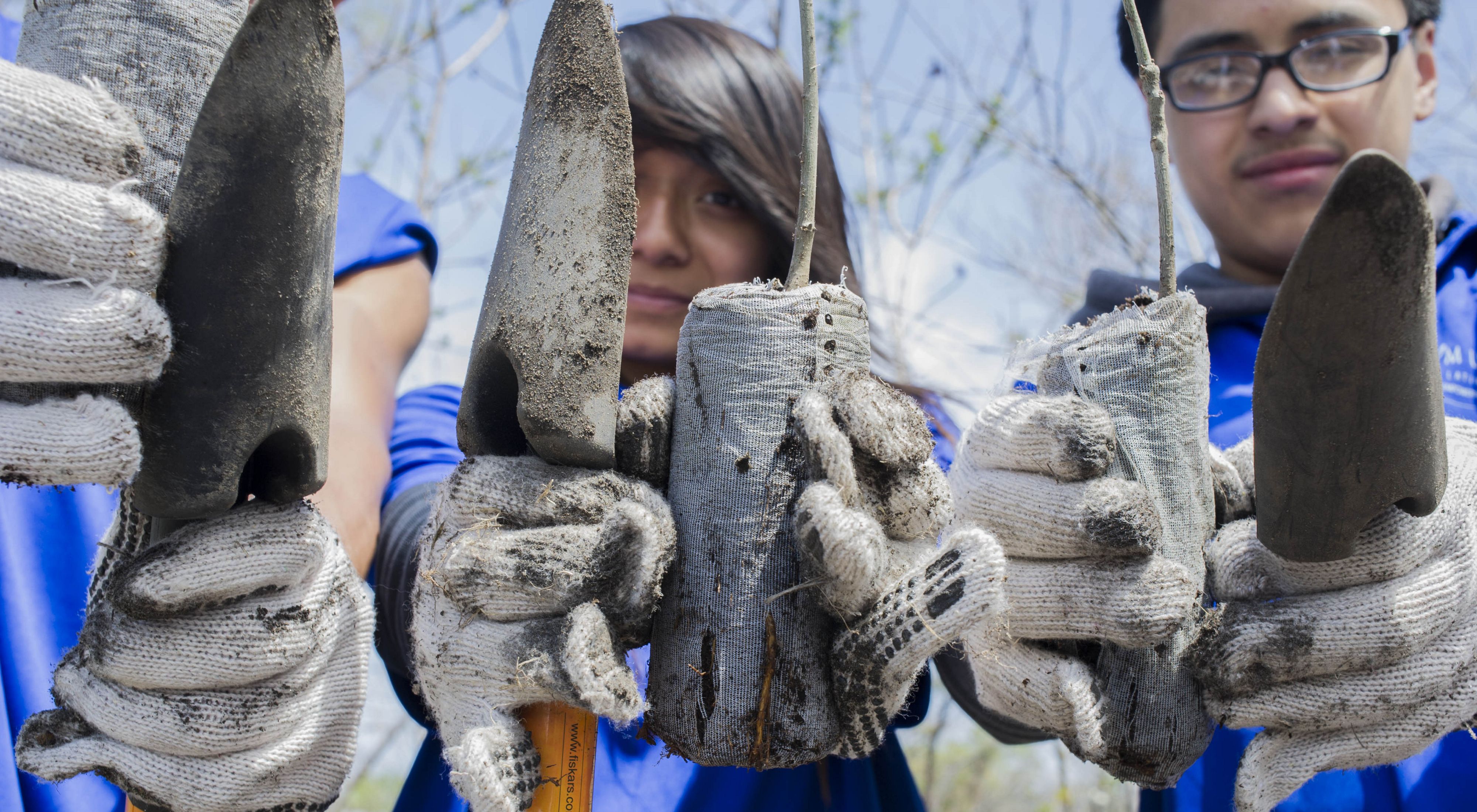
Help protect and restore nature near you, connect to our conservation work and build community.
Be a nature ally.
Serving as Nature Allies, volunteers are helping to restore the earth with a shared vision to build healthy, more resilient and equitable lands, waters, and communities. Everyone has a role to play, join us and give back to nature.
- Find Opportunities
Volunteering at TNC
- Volunteer Stories
- Testimonial
Get Involved
Find Volunteer Opportunities Near You
Nature needs everyone! Find a volunteer position that suits your skills and interests, from planting trees and removing invasive species at a nature preserve to data collection to virtual volunteering using your professional skills.

Volunteer Programs:
- Maryland and DC
- Massachusetts
- New Hampshire
- Pennsylvania
- Rhode Island
Curious about the kinds of volunteering opportunities we provide? These are just a few activities our volunteers support.
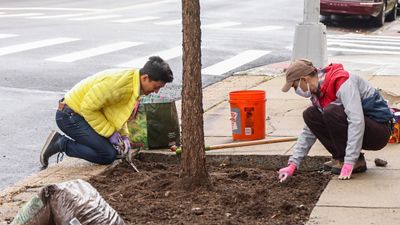
Urban Conservation
Plant and care for street trees in your city to provide habitat and improve air quality.
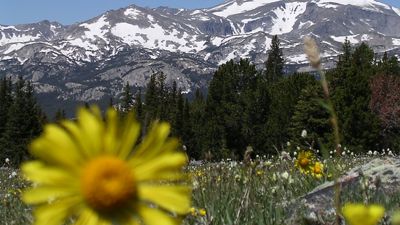
Community Science
Log plant data so climate scientists can compare with historical records.
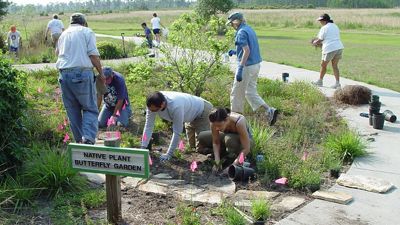
Restoration & Education
Control invasive species, care for native plants and monitor rare species in preserves.
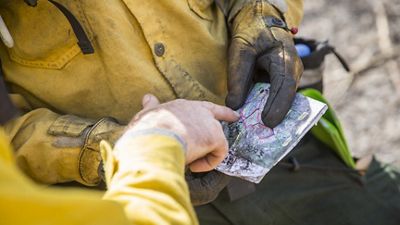
Skills-based
Analyze data to improve our use of prescribed fire.
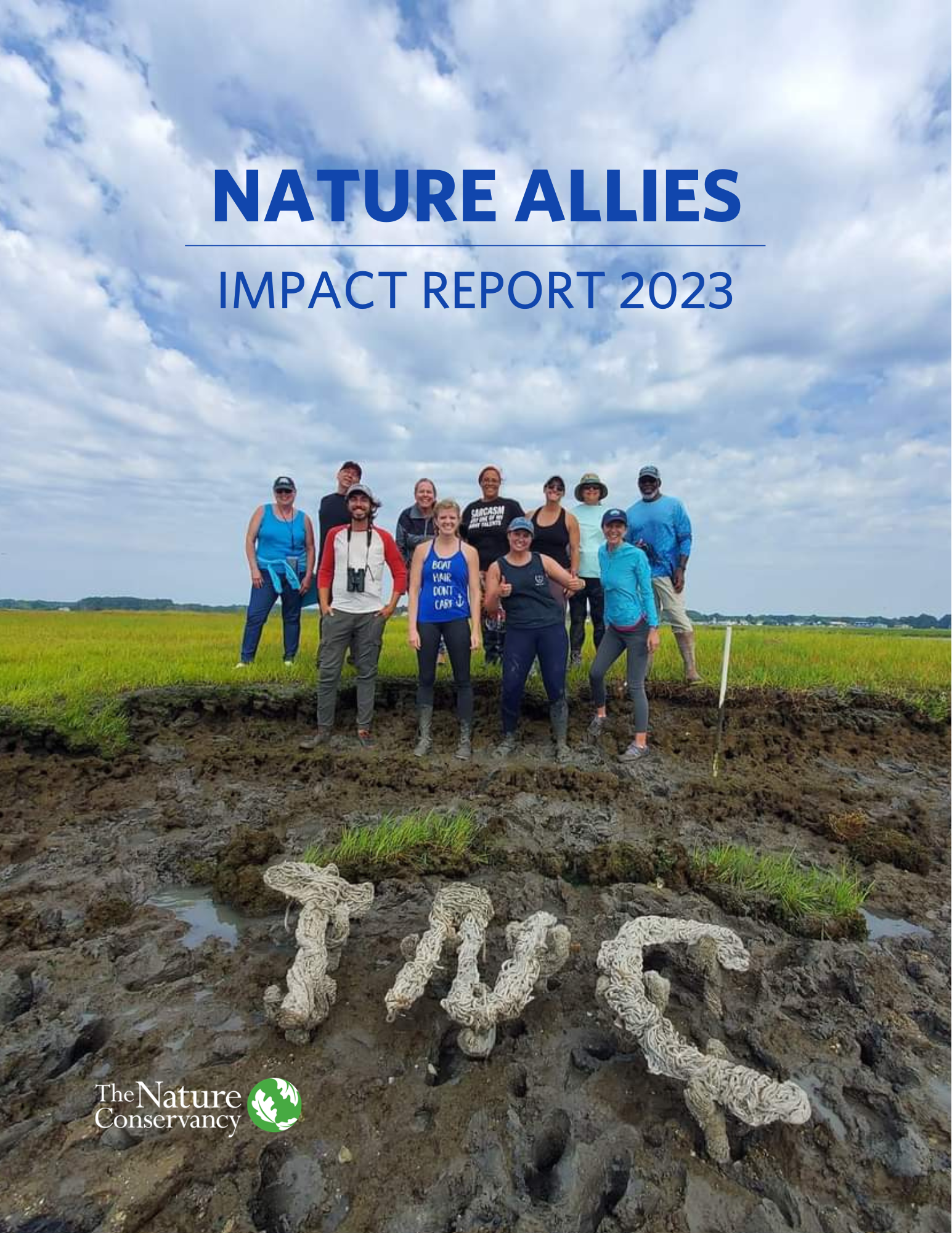
Stories from the Field

Backyard Bioblitz: How to Be A Citizen Scientist in Your Backyard
By The Editors
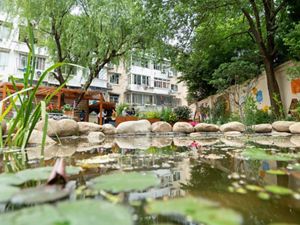
A Place for Nature in Shanghai
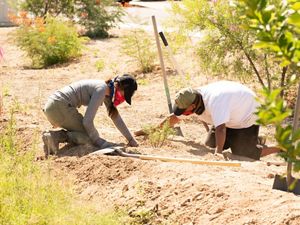
Building Healthy, Clean and Climate-Resilient Cities
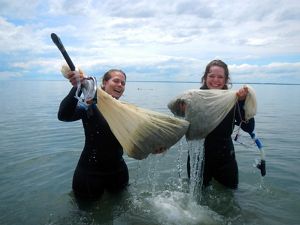
Restoring Eelgrass on Virginia’s Eastern Shore
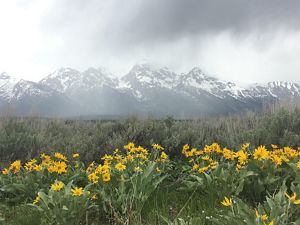
Volunteers: Community Scientists
Volunteer Testimonial
Building Oyster Habitat in Virginia
Diversity, Equity, Inclusion and Justice
The Nature Conservancy values diversity—with regard to race, ethnicity, gender identity, sexual orientation and more—and encourages everyone to connect with nature. We have a zero-tolerance policy for discrimination.

Volunteer FAQ
Find a volunteer opportunity by visiting our Volunteer Opportunities page . Each individual volunteer opportunity lists information on how to get involved, including whether any preparation—such as signing forms or traveling to a specified location—is required. Volunteer opportunities are based on conservation needs and capacity. If the area in which you would like to volunteer is not listed, contact the TNC office directly to see what opportunities might be available. Volunteer opportunities may or may not be available with our projects in countries abroad; if you are interested in volunteering outside the United States, please contact our office in that region for more information. Additional questions? Contact Megan Whatton , Nature Allies Program Manager.
There are a wide range of volunteer opportunities available for individuals and groups in a variety of settings—both indoors and out. On TNC preserves and on our partner lands, volunteers play a key role in habitat restoration, species monitoring, leading tours, education and cultural programs, and more. In select cities, we work with multiple partners to support community action that comes in many forms such as planting trees, restoring green space and/or monitoring biodiversity, mitigating urban heat, or protecting water quality. Volunteers also provide support in our offices and lend their expertise on projects.
Most of our volunteer roles do not require prior experience. We value the many contributions beyond in-kind time volunteers provide, such as lived experiences, connections, community perspectives and passion. If training is required, it will be provided.
We are all part of this beautiful, living planet. Volunteering for nature is a way to give back in reciprocity and is an expression of gratitude to the natural world and all it provides for us. There are also many other benefits to volunteering for conservation:
- Spending time outside in nature can also help improve your mental and physical health.
- Volunteers learn about local nature and the conservation field, and they have the opportunity for personal growth while connecting with others in their community who want to make a difference.
- Volunteers can earn community service hours or bring friends and family to bond in nature over shared experiences.
- Some of our volunteer activities take place in areas not open to the general public, giving our valued volunteers access to otherwise closed preserves and natural areas.
- Volunteers provide critical skills and expertise on our projects that improve the whole community. For example, on preserves and partner natural areas, volunteers are restoring and maintaining diverse habitats, making them resilient in the face of climate change impacts—helping people, plants, animals and other organisms adapt to warmer temperatures and extreme weather.
We welcome volunteers of all ages and abilities. Most of our volunteer opportunities are family friendly, but it’s always good to check first. Please connect with your local TNC office to find out more about the specific volunteer activities near you.
This work requires many hands (and hearts) and we welcome civic groups, scout groups, faith groups, corporate groups and others to help restore, monitor and care for nature. For example, groups may remove invasive plants, collect and sow native seeds, plant trees and more. Contact your local TNC office about opportunities to organize a group volunteer or community engagement activity.
Giving back to nature is not only fun, but an excellent way to earn community service hours and an opportunity to learn more about the conservation field. Our local staff will work with you to document time spent volunteering as additional credits or community service.
The volunteer coordinator will let you know if you need to bring any special items with you for your event. If you are going to be spending time at a preserve or natural area, it’s always a good idea to protect yourself from the elements and bring anything you might need to help you get the most from your experience. Suggested items may include:
- Sunscreen and sunshields (like hats and long sleeves)
- Extra water and snacks
- Wet weather gear (such as boots and rain jackets)
- Insect repellant
- Sturdy shoes
- Binoculars and/or a camera
- Field guides, a compass or anything you’d bring while enjoying nature
Stay connected with us
Sign up here to receive monthly updates from The Nature Conservancy. Get a preview of a Nature News email.
Please provide a valid email address
You’ve already signed up with this email address. To review your email preferences, please visit nature.org/emailpreferences
We may have detected a typo. Please enter a valid email address (formatted as [email protected]). Did you mean to type ?
We are sorry, but there was a problem processing the reCAPTCHA response. Please contact us at [email protected] or try again later.

Careers at TNC
For information about paid job opportunities with TNC, visit our Careers page.
DataKind tackles the world’s toughest challenges with data science and AI.
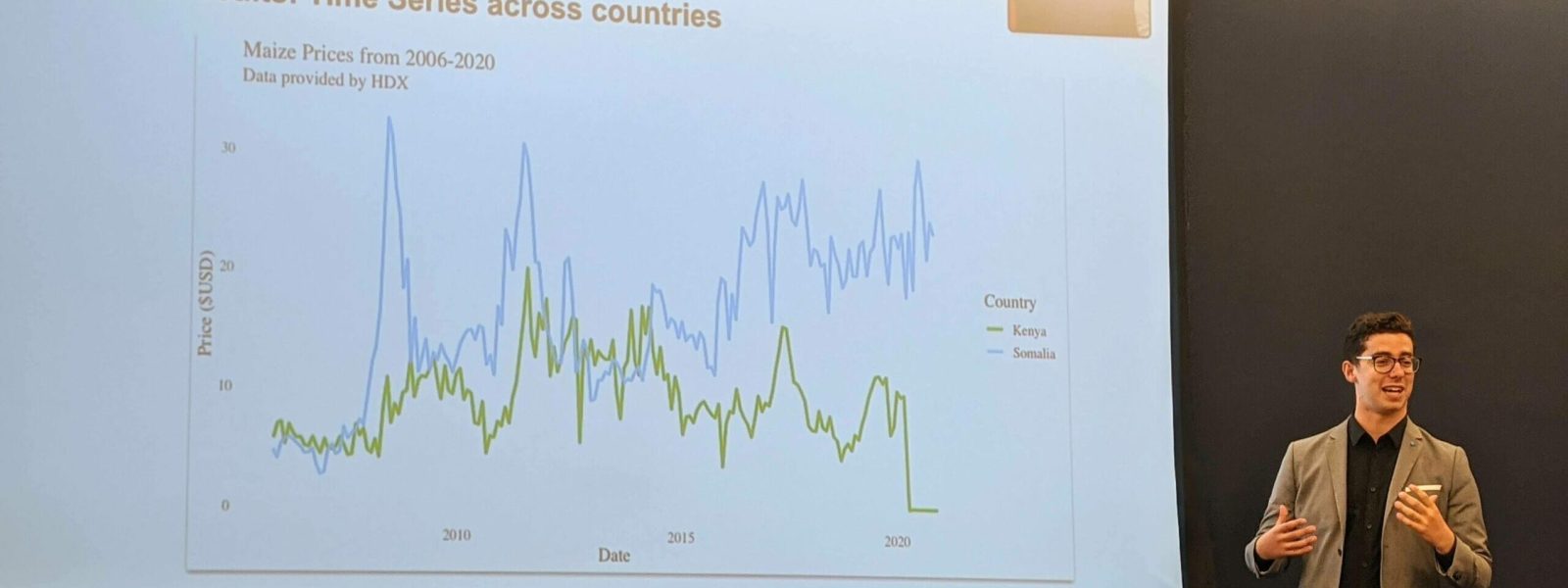
Volunteer with DataKind
As a data scientist, you know that data has immense potential for positive social impact. As a DataKind volunteer, you’ll be applying your expertise to pressing critical issues such as poverty, healthcare access, and mitigating the impacts of climate change, working directly with both DataKind staff and our social impact partners.
Our projects allow quantitative experts to use their skills to make a difference in communities around the world. Volunteering with DataKind also offers opportunities for professional growth and skill development, as it involves collaborating with interdisciplinary teams, tackling real-world problems, and navigating diverse datasets.
Volunteers may be located anywhere in the world, as DataKind has many opportunities to volunteer remotely. In-person opportunities are typically (but not always) located in a city with a DataKind chapter . DataKind also hosts pop-up events in cities around the world, giving our remote volunteers an opportunity to engage and network.
Become a DataKind Volunteer in three easy steps:
Step 1: Learn about DataKind’s Projects
To see if volunteering with DataKind is right for you, check out our blog to learn about volunteer spotlights and our recent projects to get a sense of what types of issues you would be working on, and what the experience can offer. You can also attend any of our regular webinars or drop in on a virtual DataDive event. Follow DataKind on Twitter , LinkedIn , Facebook , or sign up for our newsletter to hear about new events and projects.
Step 2: Create a Volunteer Profile
Go to datakind.rosterfy.com , and log in to your account or set up for a new one. You will be asked to include your contact details, as well as your data science skills and experience. You may also upload a picture and personal bio. Keep you profile up-to-date so you can be considered for volunteer opportunities as they arise.
Step-by-step instructions on creating a DataKind profile on Rosterfy. [pdf]
Step 3: Follow DataKind and Apply for Projects
Follow DataKind on social media, and subscribe to our monthly newsletter to receive all calls for volunteers and notifications of new projects. If you are located near a DataKind Chapter , you can connect with them directly for in-person events.
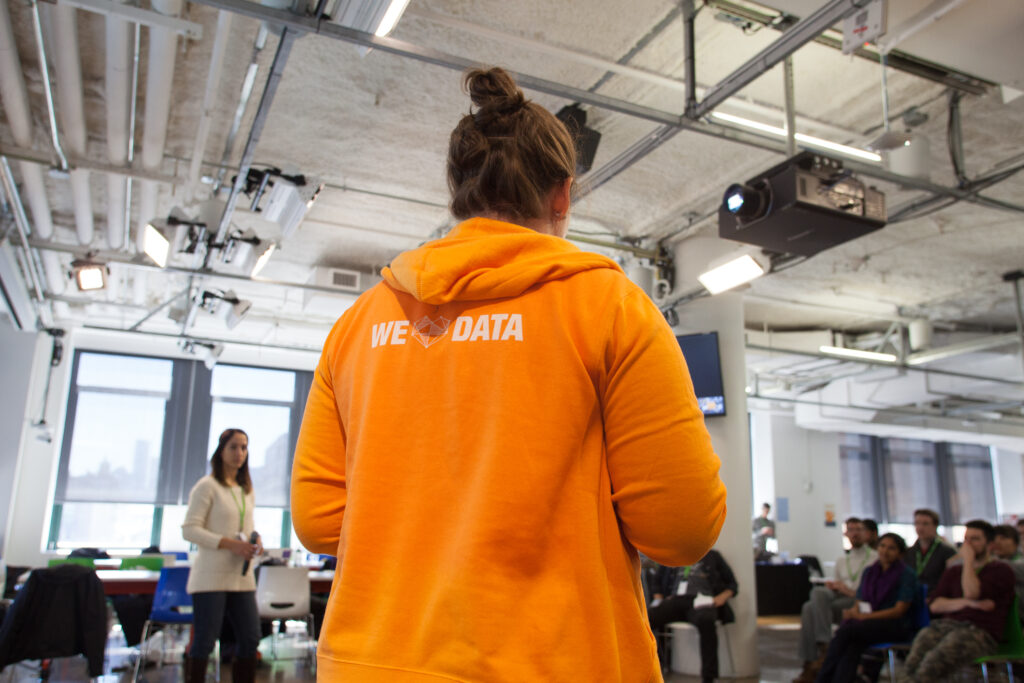
Connect with a DataKind volunteer chapter near you
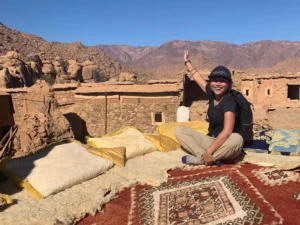
Volunteer Spotlight: Danning Chen
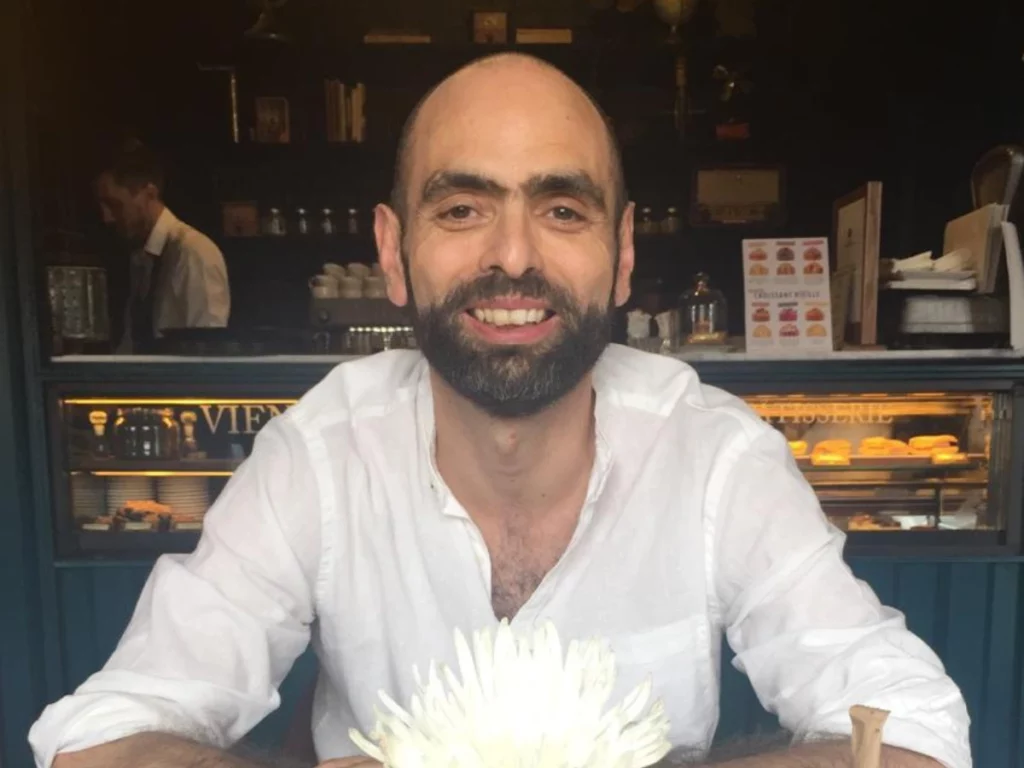
Volunteer Spotlight: Lorenzo Rubio
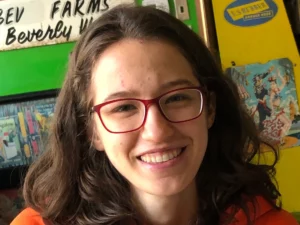
Volunteer Spotlight: Charlotte Ellison

Volunteer Spotlight: Vijay Srikanth

Partner Spotlight: Sanima

DataKind + Sanima: Using data science to expand safe sanitation solutions for a cleaner, healthier Lima

DataKind GenAI Learning Circles: Driving data maturity and social sector community
Marine Biology Research Volunteer Programs | Oceans Research
Marine Research Volunteer
As a marine biology research volunteer with Oceans Research, you will have the opportunity to work on long-term research projects and get up-close and personal with great white sharks, whales, dolphins, and other marine species.
What is the Field Research Volunteer Program and who can enroll in it?
Oceans Research Institute’s field research volunteer program provides a first-hand practical experience in marine research and conservation.
As a marine biology research volunteer with Oceans Research, you will have the opportunity to work on long-term research projects, such as the great white shark population assessment or habitat use of marine mammals.
During the volunteer program, our volunteers gain first-hand, practical experience with a diversity of field research, seamanship, and data analysis skills. For example, volunteers learn how to read white shark behavior and spot unique, identifying features on great white sharks for our long-term, population monitoring study. They also learn proper handling, measuring, and tagging techniques of several shark and fish species during our different fishing shifts. Volunteers learn to identify up to six different cetacean species, monitor behavior and track habitat use during our land-based cetacean surveys. Our intertidal, snorkel and marine litter surveys allow volunteers to practice different types of transect surveys, to understand why different survey types are more or less effective for different project aims. During all boat-based projects, our volunteers learn proper seamanship skills.
Volunteers staying more than one month also have the opportunity to pursue independent research projects that can go towards college or research credits at their home universities. They can either use pre-existing data from our long term datasets and/or can collect data during their fieldwork shifts. Depending on the length of their stay and their project aims, volunteers have an invaluable opportunity to practice all stages of independent research from project design to implementation to analysis.
When not in the field, our volunteers gain experience with data management, organization, gear maintenance, and data analysis. After every shift, volunteers practice data management by carefully entering and cleaning up the data collected from that previous shift. They learn how to analyze Baited Remote Underwater Video (BRUV), practicing species identification for species diversity and richness assessments.
Not only do our volunteers learn a diversity of skills that leave them well equipped to pursue a career in marine science, research, conservation and more, but they also take a variety of courses that expand their knowledge of local and current scientific topics, such as proper shark handling and tagging techniques, predator-prey ecology of great white sharks and Cape fur seals, shark stress physiology, marine mammal stranding and dissections, effective science communication, and more.
With 3-4 hour shifts, from Monday through Friday, our volunteers are either in the field, on the boat, underwater, in an aquarium or in the lab collecting data, observing wildlife, learning to scuba dive, analyzing footage, entering data and so much more.
Our volunteers arrive with a variety of backgrounds-some with years of experience and graduate degrees in marine science and some with no experience at all. Some know exactly what skills or experiences they want to have, and some just want to figure out if they even like marine science. Our mission here at ORI is to give you as much hands-on experience as possible to help you find and/or nurture your passion, be it research, sharks, limpets, photography, science communication or something else entirely, and to have you walk away feeling confident, knowledgeable and capable.
There are no specific criteria for the research volunteer program, anyone interested in marine research, conservation, and environmental awareness can apply for the Marine Field Research Program.
For more information about the program click here .
Keen to learn more? Join us on Facebook
Thank you for your feedback.
Let us know how we're doing.
Do you like the site? Something wonky? Can't participate? Let us know:
- For Volunteers
- Burst Network
- VS for extra credit
- In Class Demos
- For Researchers
Become a Researcher
- Documentation

Create online studies. Recruit anyone in the world.

Become a Volunteer
Participate in behavioral studies from researchers around the world..

- Our Mission
- Human Subjects
- Privacy Policy
- Terms of Service
Researchers
- Research Home
For Educators
- VS for Extra Credit
- In-Class Demos
- Our Researchers
- Our Funders
OHSU Visitors and Volunteers
Volunteer opportunities in research, shadow opportunities restricted.
Currently, high school students and undergraduates who want to observe clinical operations and/or visit clinical areas must be a part of vetted and approved through established OHSU programs. See a list of approved programs.
CRISP (Clinical Research Investigative Studies Program)
The Clinical Research Investigative Studies Program (CRISP) exposes vetted pre-health students to the world of clinical research in emergency medicine through prospective ED research projects at the Marquam Hill campus. The CRISP program will give students considering potential health related careers hands on experience in the Emergency Department (ED) helping facilitate the completion of clinical research studies. The students will interact with both Emergency Department patients and research investigators. Since 2004, CRISP students have successfully screened, consented, and enrolled thousands of patients into multiples studies of varying complexity, including FDA drug and device trials, and cross-sectional and prospective survey studies.
Our CRISP students undergo hours of rigorous fundamental concepts of clinical research, confidentiality, consent and procedural skills, practice informed consent, continuous learning that provides ongoing research education including the CITI modules on Human Subjects Protection, GCPs, and HIPAA. Once trained, the CRISP student will use EPIC (the electronic health record system at OHSU) to proficiently screen all patients who come into the OHSU Emergency Department for each active study protocol. If a patient is deemed eligible for the study, the CRISP student will inform the patient and/or the patient’s legal guardian (LAR) about the study, and proceed with the informed consent process if the patient is willing to participate. Once the patient is consented, the CRISP students will move forward with enrollment procedures which can range clinical data abstractions, patient surveys, and/or work with the ED treatment team to collect necessary patient samples and imaging such as ECGs, blood, urine, or stool.
For more details, www.ohsu.edu/crisp or view the CRISP information Flyer .
Commitment Requirements:
- Pre-health students, highly disciplined and motivated
- Able to commit to 2-four hour shifts (8 hours) per week for 12 weeks -then after 12 weeks able to commit to one-four hour (4 hour) shift per week – 1 year commitment
- Able to commit to 4h of mandatory office auditing shift
Eligibility :
- Pre-health students who can commit to the program for 1 year
- Excellent written and verbal communication skills
- Pre-health students who are highly motivated and detailed-oriented
Interested ? Please email [email protected] to get on the list. We will be hosting information sessions Quarterly throughout the year. To apply, www.ohsu.edu/applycrisp
Division of Gastroenterology and Hepatology
The Division of Gastroenterology and Hepatology is looking for a volunteer to assist with clinical trials conducted by the division. Current studies include research on monitoring and treatment of pancreas divisum, pancreatic cysts, esophageal strictures, colon adenomas, inflammatory bowel disease, and non-alcoholic fatty liver disease.
Primary Duties: Volunteers will assist with recruitment and eligibility screening, consenting and enrolling participants, conducting study visits and entering data. Additional responsibilities will depend on the volunteer’s interests and the needs of the research team.
- Commitment: Volunteers are expected to be available at least two half days (8 hours) a week for a period of 12 months.
- Eligibility : Volunteers should be an undergraduate student, post bac, graduate student, or medical student interested in gaining clinical-translational research experience. Must be detail oriented, organized, timely, and professional. Basic knowledge of computer application software preferred.
- Interested? Please apply by sending a CV and cover letter explaining your interest to Heather Katcher ( [email protected] ).
Novel Interventions in Children’s Healthcare (NICH)
The Novel Interventions in Children’s Healthcare (NICH) program serves youth with a range of complex medical conditions and psychosocial vulnerabilities (e.g., insufficient access to resources, mental health issues, involvement with foster care system). The NICH research team, under direction of Drs. David Wagner and Michael Harris, is evaluating the ability of NICH to meet the triple healthcare aim: improving health, improving care, and reducing medical costs. Currently we are looking for research volunteers to help with a new study assessing risk factors of poor health outcomes in youth with type 1 diabetes who would be most likely to benefit from the program. This is a great educational and training opportunity for those interested in pursuing graduate study in psychology, social work, public health, pediatrics, emergency medicine, and related fields.
- Primary Duties: Research volunteers will primarily assist with participant recruitment, scheduling and tracking completion of study tasks, and medical chart review. There is also opportunity for volunteers to contribute to scientific posters and complete their own independent research project in a lab-related topic.
- Eligibility: Must be a college junior, senior, or post bac. Must be comfortable interacting with individuals with diverse backgrounds in the hospital and community. Previous experience with adolescents and families, as well as access to reliable transportation, a plus, but not required.
- Commitment: Requesting a minimum commitment of 10 hours/week for 9-months.
- Interested? Please send Kristen Torres ( [email protected] ) and Dr. David Wagner, PhD ( [email protected] ) a letter of interest, a resume and/or vita, and the names and contacts of 2 individuals who can provide professional references.
For more information about NICH, go to: https://www.ohsu.edu/xd/health/child-development-and-rehabilitation-center/clinics-and-programs/cdrc-portland-programs/nich/
OHSU Innovation and Commercialization Internship
The OHSU Innovation and Commercialization internship program is an educational experience for individuals interested in technology transfer, business development, and/or patent law. Get real-world experience assisting with innovation development and the transition of technology from laboratory to market. Eligible interns can receive a monthly stipend and/or academic credit for program participation. Please note that this program is primarily remote/virtual, but interns in the Portland metro area may have the opportunity for to attend some in-person meetings.
- Commitment: An average of 8 to 10 hours per week for at least six months time. Intern performance will be assessed every three months. The program length may be extended for interns in good standing, per a formal review process.
- Eligibility: Applicants must hold a bachelor's degree in a life science, a physical science, and/or engineering; be pursuing or have received a graduate-level degree in science, medicine, engineering, business, or law; and have an interest in intellectual property, technology transfer, and/or business development as a career goal.
- Interested? Please see the OHSU Innovation and Commercialization Internship Website for application instructions. Contact Nicole Garrison ( [email protected] ) with questions.
Oregon POLST Registry
The Oregon POLST Registry is a secure electronic record of patient’s end-of-life treatment preferences (POLST- Portable orders for life-sustaining treatment). The Registry relies on the hard work of our generous volunteers to process communication with POLST patients via mailed registration confirmation. Registry confirmation packets include a letter confirming the registrant’s information, medical orders, and other printed materials. The Registry also sends out notifications when a registrant updates their POLST orders and notifications for POLST forms that are about to expire. Volunteers will gain experience handling PHI, diversify knowledge of HIPAA compliance in a non-clinical setting, and support emergency services. The Registry team is truly grateful for the time and energy that volunteers contribute to the Registry’s mission.
- Primary Duties : Preparation of registrant confirmation packets, update letters, and 10 year expiration letters. Volunteers will additionally verify that the content of the mail is being sent to the correct person.
- Commitment : Between 2-4 hours a week for a minimum of 3 months.
- Eligibility : Volunteers must be at least 16 years old. The hours are flexible but must be completed within The Registry’s business hours – Monday through Thursday 7:30 to 4:00 PM.
- Interested? Contact: [email protected] for more information.
Pediatric Nephrology Department Volunteer
The Pediatric Nephrology Department is actively involved with many ongoing national clinical trials including longitudinal observation studies, rare diseases, pharmacokinetics, and investigator initiated research.
- Primary Duties: Volunteers will assist research coordinators with study visits, data collection, data entry, and other scholarly activities with opportunities for networking and participation in publications. We are recruiting volunteers who are enthusiastic about research and would like to gain experience in working with pediatric clinical trials.
- Eligibility: Completion of bachelor degree in science field is preferred but will consider exceptionally qualified applicants. Pre-medical students are encouraged to apply. Must be detail oriented, organized, timely, and professional. Basic knowledge of computer application software preferred.
- Commitment: 6-16 hours per week for least 6 months.
- Interested? Please e-mail Kira Clark at [email protected] with a CV and cover letter.
Prenatal Environment And Child Health (PEACH) Study
The Prenatal Environment And Child Health (PEACH) Study, under the direction of Dr. Elinor Sullivan and Dr. Joel Nigg are looking for volunteers to aid in their study. The PEACH Study is a longitudinal research study that will follow mothers from the second trimester of pregnancy until the child is 5 years of age. The purpose of this study is to learn more about how prenatal factors, such as nutrition, influence infant and toddler behavior and risk of neurodevelopmental disorders such as ADHD. This study will determine which prenatal factors are the strongest predictors of alterations in infant and toddler behavior associated with neurodevelopmental disorders, and set the stage for new approaches to prevent or treat child mental health problems.
- Primary Duties : Volunteers may assist the lab with recruitment, eligibility screening, participant visits, data collection and scoring, data entry, cleaning of physiological data, coding of video taped visits, transcription of audio files and other general laboratory and administrative duties in support of the study. Specific responsibilities wi ll depend on each volunteer’s interests and strengths.
- Com mitment : A minimum of 4 -15 hours p er week for at least 1 year.
- Eligibility : Must be a junior, senior or post bac (or have exceptional qualifications). Coursework in nutrition, infant and early life development, neurophysiology, and infant and child behavior is preferred/ beneficial. Preferred minimum G PA of 3.0. Must have some availability during the workday with the possibility of working over weekends. Must have strong interpersonal skills, be detail oriented, organized, timely , and professional. Experience working with infants and young children is preferred but not required . Previous experience of behavioral coding if preferred but not required . Basic knowledge of computer application software (SPSS, Excel) is preferred.
- Interested? Please send your CV, your availability (days/times that you are available to volunteer) to [email protected] . If you have any questions, please contact Jessica Tipsord at [email protected] .
Pulmonary and Critical Care & Sleep Medicine (PRISM)
PRISM research team performs phase II-IV clinical trials in pulmonary clinics and hospital settings. We have multiple ongoing clinical trials in conditions like pulmonary artery hypertension, COPD, and acute respiratory distress syndrome. We accept highly disciplined volunteers to conduct chart reviews of study subjects/patients using electronic medical records (EPIC) and enter the information in a secure database and support research coordinators. Our offices are located on the 1st floor of Emma Jones Hall, Room 121. Shadowing opportunities will be offered to our volunteers after completion of 6 months of volunteering with PRISM.
- Primary Duties : Conduct chart reviews of study subjects/patients using electronic medical records (EPIC) and enter the information in a secure database and support research coordinators.
- Commitment : Volunteers are expected to be available at least two half days (8 hours) a week for a period of 12 months.
- Eligibility : Intended for pre-medical students interested in gaining research experience before applying to medical school. International medical graduates interested in gaining experience in phase 2 and phase 3 clinical trials in pulmonary critical care and sleep medicine may also apply.
- Interested ? Contact: [email protected] with your resume, and a statement of interest/goals for PRISM.
For more information, visit the Division ( https://www.ohsu.edu/school-of-medicine/pulmonary-critical-care-medicine ) and the study team ( https://www.prismtrials.com/ ) websites.
Transgender Health Research InitiatiVE (THRIVE)
Intermittent research volunteer opportunities available for motivated graduate students or advanced undergraduate students interested in conducting research with transgender and gender diverse youth and their families. Example research projects include retrospective medical chart review, measurement development (e.g., gender euphoria measure), and quality improvement related to transition from pediatric to adult healthcare. The position would be directly supervised by Danielle Moyer, PhD, assistant professor in the OHSU Department of Pediatrics and Division of Psychology.
- Must have excellent interpersonal skills
- Comfortable working in a professional and clinical environment
- Strong writing skills
- Preferably detail oriented and organized
- Familiarity with psychology, medicine, or public health
- Prior experience with youth and/or the transgender community is a plus
- Lived experience or strong allyship preferred
- Commitment: Availability for volunteering for specific projects is subject to change, and specific volunteer duties and required hours will depend on the specific project and current project status. An individualized research training experience will be established based on availability as well as volunteer’s interests and goals. Publication opportunities and/or opportunities to observe clinical care may also be available. Please note that onboarding for non-OHSU affiliated volunteers may take up to 2 months, and therefore may not be a good fit for those looking for short-term experiences. Those affiliated with OHSU may also need additional onboarding.
- Contact Information: To inquire about current opportunities, please email Dr. Danielle Moyer at [email protected] with a brief statement of interest, availability to volunteer, and any current affiliation with OHSU. If an appropriate opportunity is available, you will be asked to provide your CV/resume and a professional/academic reference. Feel free to email for any qualifying questions or to learn more.
VirtuOHSU Simulation & Surgical Training Center Volunteer
Pre-health (pre-nursing, pre-med, pre-PA, pre-pharmacy, etc.) undergraduate or graduate student volunteers are needed to assist the VirtuOHSU Simulation & Surgical Training Center, team in OHSU Simulation. OHSU Simulation is the health care simulation program at OHSU responsible for training a variety of health care providers in controlled and simulated environment, outside of the clinical setting. There are 3 major simulation centers on the OHSU, Portland, campus: VirtuOHSU Simulation & Surgical Training Center and Multnomah Pavilion Simulation on Marquam Hill as well as the Mark Richardson I Simulation Center in CLSB. This volunteer work would be up on Marquam Hill.
- Primary Duties: Duties include assisting with lab events, facilitating set up and break down of training sessions, maintenance of simulation models, administrative duties, organization of supplies, and assisting with the outreach events for surgical simulation. Volunteers work closely with medical students, residents, faculty, and OHSU Simulation Staff to accomplish the mission of OHSU Simulation.
- Volunteer Schedule: Flexible, Monday-Friday with variable hours between 0800-1700. Estimated 4-6 hours per week, no less than 2 hours for a day.
- High School Diploma or equivalent
- Must be at least 21 years of age for VirtuOHSU Simulation & Surgical Training Center
- Must be able to show current enrollment as an undergraduate or graduate student
- Must demonstrate excellence in verbal and written, communication, professionalism, motivation, reliability, organization, time management, and customer-service focus
- Candidate should be able to work independently and as part of a team, effectively multi-task, be attentive to detail, and possess an aptitude for problem-solving
- Individual must be able to lift and move 30 pounds easily as needed
- The volunteer will be willing to work within the same lab space as animal and cadaveric tissues occasionally
- Professional interest in medicine, health care, simulation, life sciences, and/or medical research
- Course work in pre-health, pre-medicine or life sciences
- Professional interest surgery (specifically for VirtuOHSU)
- Experience in event planning
- Interested? Please email Cover Letter, resume, include current GPA, references, and letter of recommendation to: VirtuOHSU Simulation Center: Elena An, Operations Director OHSU Simulation at [email protected]
Additional Details
- Parking access on Marquam Hill/OHSU campus is extremely limited. Please be prepared to walk, bike, or use public transit to and from OHSU
- See more information at http://www.ohsu.edu/xd/education/simulation-at-ohsu/
- It is expected that all volunteers dress in business casual attire (collared shirt, no jeans or shorts, no tennis shoes) or clean, well fit scrubs and closed toed shoes.
Please note: In compliance with Oregon law, OHSU’s COVID-19 Immunization and Education policy will go in effect Oct. 18, 2021. Visitors and volunteers who have an in-person assignment must be fully vaccinated (defined as having received both doses of an original two-dose COVID-19 vaccine, or one dose of an original single-dose COVID-19 vaccine, and at least 14 days have passed since the individual's final dose of COVID-19 vaccine) or adhere to any requirements set forth by OHSU's Occupational Health Clinic for unvaccinated individuals.
Click here for details on our COVID-19 health and safety protocols.
Travel the world. make a difference..
Earthwatch expeditions pair researchers with volunteers to address some of the world’s most pressing environmental challenges. Explore our current expeditions to discover how you can make a difference.
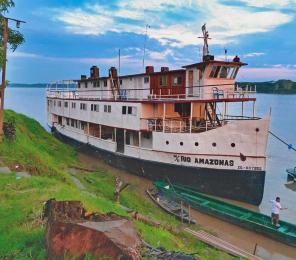
Help conserve wildlife within the Amazon Basin as you search for pink river dolphins, macaws, and other iconic species.
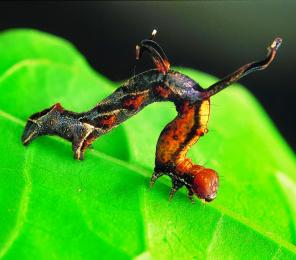
How much can the humble caterpillar tell us about the world we live in? More than you might imagine.

Scientists expect to see the greatest effects of climate change in the Arctic. But what, exactly, will these effects be?
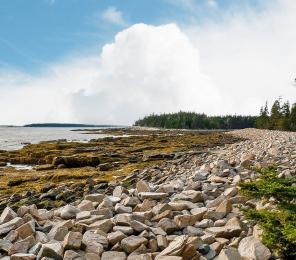
Amongst the lush forest, help study bees, hummingbirds, and pollinators critical to ecological health.
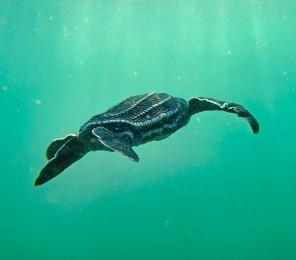
Why have Pacific leatherback sea turtles almost disappeared? Look for answers and solutions on Costa Rica’s beaches.
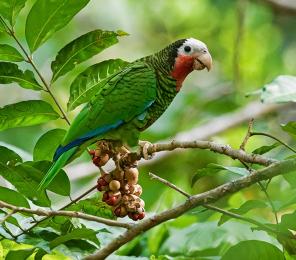
Join scientists on the largest island in the Caribbean to conduct an assessment of its diverse array of bird species.

CUSTOM EXPEDITIONS FOR GROUPS
Explore the world together. Our expert staff can coordinate a meaningful experience for school groups, corporate employees, alumni associations, community groups, or other affiliations.
Learn more about group expeditions
Be more than a tourist
I have participated twice on this project. The lead archaeologists are informative, helpful, and provide tasks for volunteers of all abilities and skill levels. The location is exotic. Royanne Cruthers-Moon — Unearthing the Ancient Secrets of Angkor in Cambodia
Our Research Focus
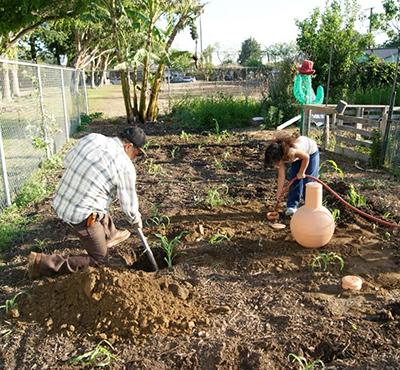
Sustainable Cities and Communities
Collect essential environmental data to promote urban resiliency while helping to influence positive change.
More about Sustainable Cities and Communities
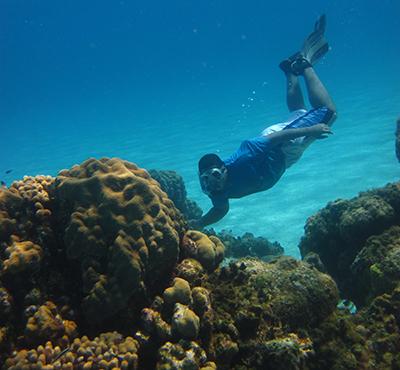

Ocean Ecosystems
Take action to protect marine habitats, conserve biodiversity, and promote sustainable livelihoods.
More about Ocean Ecosystems
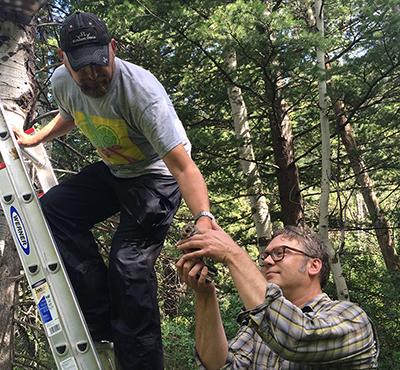
Terrestrial Ecosystems
Preserve and restore forests, assess and mitigate the impacts of a changing climate, and conserve biodiversity.
More about Terrestrial Ecosystems
Quick Links
- UW School of Medicine

Volunteer for Research Studies
Participate in Research is designed to connect potential volunteers with open research studies. We are looking for volunteers just like you to help answer important questions about a variety of health conditions. Learn more about volunteering for research studies below.

About Volunteering for Research Studies

Research Study FAQs

FAQs About this Site
Research studies test whether new medicines, devices, or procedures are safe and how well they work.
There is a critical need for volunteers for these studies. Low enrollment in research studies is one of the largest problems facing the development of new and improved treatments. Eighty-five percent of studies get started late and 40 percent never finish because of a shortage of volunteers.
How You Can Help
When you participate in a research study, you are helping to move research forward. This means that cures and treatments are able to reach people more quickly.
This site can help you find studies that match your interests or needs. Both healthy volunteers and people with specific health conditions are needed to help answer important healthcare questions.
Other Ways to Help
We also encourage you to learn more about the two nationally focused research endeavors below.

To get there, the study needs one million or more people. Those who join will share information about their health over time. Researchers will study this data. What they learn could improve health for generations to come.
Learn more about the program | How to Join

Many studies are looking for healthy people of all ages, while some are looking for people with specific health conditions. Considering becoming a ResearchMatch volunteer? Visit the ResearchMatch website to learn more about the registry, and be sure to read the Volunteer FAQ .


Privacy Statement and Terms of Use
Jun 4, 2024
Where to Find Research Volunteer Opportunities
Participating in research studies is a valuable way to contribute to scientific advancements while gaining unique experiences. Whether you're an undergraduate student, a graduate student, or an individual with a prior or existing health condition seeking to volunteer, there are numerous opportunities available. This article explains where to find research volunteer opportunities and provides detailed information on what to expect during the application process.
Why Should You Consider Volunteering In Research Projects?
Volunteering in research projects presents a wealth of compelling reasons why individuals should seriously consider getting involved. Here are five key motivations:
- Contribution to Improved Patient Care: Volunteering in research projects directly impacts the advancement of medical knowledge, leading to improved patient care. By participating, individuals contribute to the development of new treatments, therapies, and interventions that can enhance healthcare outcomes for patients worldwide.
- Development of Skills: Engaging in research projects provides an excellent opportunity to cultivate and refine a diverse set of skills. From critical thinking and data analysis to communication and teamwork, volunteers gain invaluable experience that is applicable across various professional domains, enriching their skill set and enhancing their career prospects.
- Service to the Community: Volunteering in research is a form of service to the community and society at large. By dedicating their time and expertise to advancing scientific understanding, volunteers play a vital role in addressing pressing health issues and promoting the well-being of individuals and communities.
- Exploration of Medical Careers: For individuals aspiring to pursue careers in healthcare or research, volunteering in research projects offers invaluable insight and exposure. Through involvement in complex studies and clinical experiences, applicants gain firsthand knowledge of the field, helping them make informed decisions about their future academic and professional paths, especially beneficial for university students on the precipice of their careers.
- Exposure to a Wide Variety of Studies: Research projects span a diverse range of topics and methodologies, providing student volunteers with the opportunity to explore different areas of interest within their field of study. Whether it's participating in clinical trials, epidemiological research, or translational studies, volunteers have access to a broad spectrum of research opportunities that cater to various interests and expertise levels.
Find a study near you
Volunteer Opportunities in Research
Volunteering for research studies in Canada offers a myriad of benefits, ranging from gaining experience to contributing to the greater good of society. These opportunities span across different disciplines, including but not limited to health sciences, behavioural studies, and scientific research.
Types of Research Volunteer Opportunities
1. clinical research studies.
Clinical research studies often seek volunteers to test new treatments, understand health conditions, or study human behaviour in a clinical setting . These studies can vary greatly in duration, from a single 30-minute study visit to a 12-week research study or even longer.
Prospective volunteers might participate in treatment studies, cutting-edge brain research, or physical activity studies. Healthy adults and individuals with specific health conditions are often eligible participants.
2. Community-Based Research
Community-based research involves studies conducted outside of traditional clinical settings, often focusing on public health, education, or social sciences. These studies might include behavioural observations, cognitive behaviour therapy sessions, or surveys on real-world questions affecting communities.
3. Remote and Online Studies
With the advancement of technology, many research studies are now conducted remotely. For instance, a 6-month remote research study might require participants to complete online questionnaires, use an activity monitor, or participate in virtual study visits. This approach is convenient and broadens the reach to include unvaccinated individuals or those unable to travel.
Find the ideal research study
Where to Find Volunteer Opportunities
In the quest to contribute to scientific endeavours, finding the right volunteer opportunity is paramount. While traditional avenues like university websites and professional associations offer valuable options, online platforms present a convenient, streamlined approach. Explore the breadth of opportunities available online and embark on a fulfilling journey of research participation with Reach BC .
University Websites
Many universities have dedicated research departments that list volunteer opportunities. For example, the websites of major medical schools often have sections for "Volunteers Needed for Research Study," detailing ongoing and upcoming studies. Check the research or clinical trials section of these websites regularly for the latest opportunities.
Online Platforms
Various online platforms specialize in listing research volunteer opportunities. Platforms such as REACH BC provide a unique opportunity for volunteers to create profiles, facilitating connections with research teams seeking assistance. Individuals can explore a wide range of studies and projects to find one that aligns with their interests and schedule.
Professional Associations and Societies
Organizations such as the Canadian Cancer Research Society, Alzheimer's Association, and other health-related groups often have volunteer programs. They may seek volunteers for specific research projects, including cancer treatment studies or cognitive behaviour therapy trials.
Community Centers and Hospitals
Clinical research studies are frequently conducted in healthcare settings. Hospitals, community health centres, and medical clinics often recruit volunteers for studies ranging from treatment trials to observational research. These settings offer a diverse array of opportunities for individuals to contribute to scientific research while directly impacting healthcare outcomes.
Research Institutes and Laboratories
Private and public research institutes and laboratories also offer volunteer positions. These establishments conduct cutting-edge research across a spectrum of disciplines, providing ample opportunities for volunteers to get involved.
Whether it's assisting with laboratory experiments, data analysis, or literature reviews, volunteers in research institutes and laboratories contribute to groundbreaking discoveries and innovations in fields such as biotechnology, environmental science, and beyond.
How to find research volunteer opportunities in British Columbia
The Application Process
On platforms like REACH BC , creating a profile allows you to receive personalized study matches tailored to your interests and eligibility. This streamlines the process, saving time and helping people find suitable study participation opportunities. Once matched, you can choose to pursue these studies and follow the necessary application steps for enrollment:
- Create a Profile on REACH BC: Once your profile has been created, you can then select your health category interests.
- View the Studies Available: You can view the studies available within your health category interests and select the ‘I'm interested’ button if you wish to participate.
- Sharing of Your Contact Information: Your contact information is then shared with the researcher of that study. He will contact you to share more information on how you can get involved and if you are eligible.
What to Expect During Research Study Participation
Embarking on a research study journey entails various experiences and commitments. From study visits to tasks and possible compensation, understanding what to expect ensures a smooth participation process. Prepare for a rewarding venture as you contribute to scientific advancements and gain valuable insights into cutting-edge research methods.
- Study Visits and Procedures: Study visits can vary in frequency and duration. For instance, a 30-minute study visit might involve a quick health assessment, while a 5-week research study could require multiple visits or extended stays. Some studies, such as a confidential cigarette smoking study, might involve a few sessions where your behavior and responses are monitored.
- Tasks and Activities: The range of tasks can vary significantly. Some studies might involve physical activities, blood draws, brain scans, X-rays, and CT scans. Others might require more passive involvement, such as completing online surveys or engaging in cognitive behavior therapy sessions.
- Compensation and Benefits: Many research studies offer compensation for participation, which can include monetary rewards, gift cards, or additional travel compensation. Some studies might provide a letter of recommendation or internship credits for undergraduate and graduate students, adding valuable science-based work experience to their resumes.
- Time Commitment: Understanding the time commitment is crucial. Some studies might require only a few hours per week, while others might demand more intensive blocks of time. Ensure you can commit to the study's schedule before applying.
Find Exciting Research Volunteer Opportunities in British Columbia
REACH BC has revolutionized the process of connecting research volunteers with studies across British Columbia. Our online platform utilizes cutting-edge algorithms to match volunteers with the perfect research opportunities based on their interests. Whether you're a graduate student eager to dive into a new study or a health-conscious individual looking to contribute to groundbreaking research, REACH BC ensures a seamless and personalized experience. Join our community today and embark on a journey of discovery and impact in the field of research!
Sign up fas a volunteer
Read more stories

Sep 10, 2024
What Are Clinical Trials? A Comprehensive Guide to Medical Research Studies

Compensation for clinical trial participation: Do you get paid to participate in clinical trials?

Aug 5, 2024
What is clinical research? Understanding its importance and benefits
Are you a volunteer?
REACH BC can help you connect with researchers and health research studies.
Find out how
Privacy and Security
REACH BC will not release any of your personal information to third parties, participating organizations and/or other institutions. Your information will only be available to the researcher(s) after you indicate interest in being contacted about a particular study.
If you have questions or concerns, please
or view our
Privacy Statement and Terms of Use.
For Volunteers
For Researchers
Find Studies
About REACH BC

© Copyright 2022 REACH BC
Education During Coronavirus
A Smithsonian magazine special report
Science | June 15, 2020
Seventy-Five Scientific Research Projects You Can Contribute to Online
From astrophysicists to entomologists, many researchers need the help of citizen scientists to sift through immense data collections
:focal(300x157:301x158)/https://tf-cmsv2-smithsonianmag-media.s3.amazonaws.com/filer/e2/ca/e2ca665f-77b7-4ba2-8cd2-46f38cbf2b60/citizen_science_mobile.png)
Rachael Lallensack
Former Assistant Editor, Science and Innovation
If you find yourself tired of streaming services, reading the news or video-chatting with friends, maybe you should consider becoming a citizen scientist. Though it’s true that many field research projects are paused , hundreds of scientists need your help sifting through wildlife camera footage and images of galaxies far, far away, or reading through diaries and field notes from the past.
Plenty of these tools are free and easy enough for children to use. You can look around for projects yourself on Smithsonian Institution’s citizen science volunteer page , National Geographic ’s list of projects and CitizenScience.gov ’s catalog of options. Zooniverse is a platform for online-exclusive projects , and Scistarter allows you to restrict your search with parameters, including projects you can do “on a walk,” “at night” or “on a lunch break.”
To save you some time, Smithsonian magazine has compiled a collection of dozens of projects you can take part in from home.
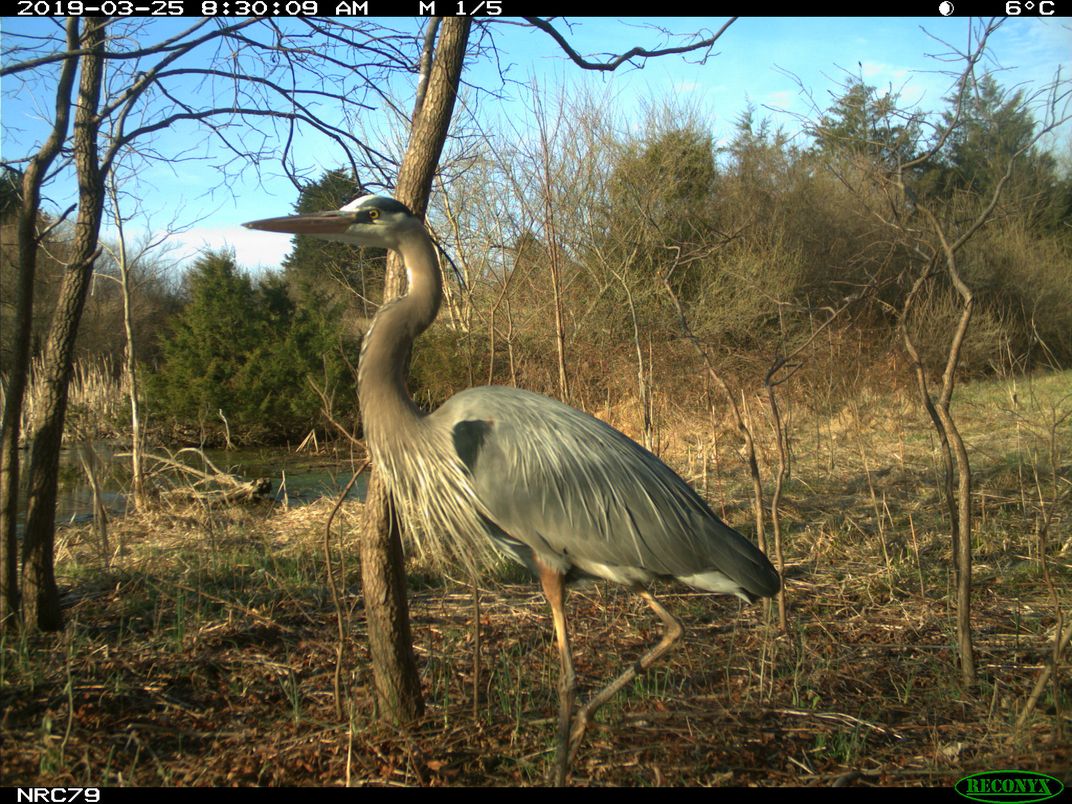
American Wildlife
If being home has given you more time to look at wildlife in your own backyard, whether you live in the city or the country, consider expanding your view, by helping scientists identify creatures photographed by camera traps. Improved battery life, motion sensors, high-resolution and small lenses have made camera traps indispensable tools for conservation.These cameras capture thousands of images that provide researchers with more data about ecosystems than ever before.
Smithsonian Conservation Biology Institute’s eMammal platform , for example, asks users to identify animals for conservation projects around the country. Currently, eMammal is being used by the Woodland Park Zoo ’s Seattle Urban Carnivore Project, which studies how coyotes, foxes, raccoons, bobcats and other animals coexist with people, and the Washington Wolverine Project, an effort to monitor wolverines in the face of climate change. Identify urban wildlife for the Chicago Wildlife Watch , or contribute to wilderness projects documenting North American biodiversity with The Wilds' Wildlife Watch in Ohio , Cedar Creek: Eyes on the Wild in Minnesota , Michigan ZoomIN , Western Montana Wildlife and Snapshot Wisconsin .
"Spend your time at home virtually exploring the Minnesota backwoods,” writes the lead researcher of the Cedar Creek: Eyes on the Wild project. “Help us understand deer dynamics, possum populations, bear behavior, and keep your eyes peeled for elusive wolves!"
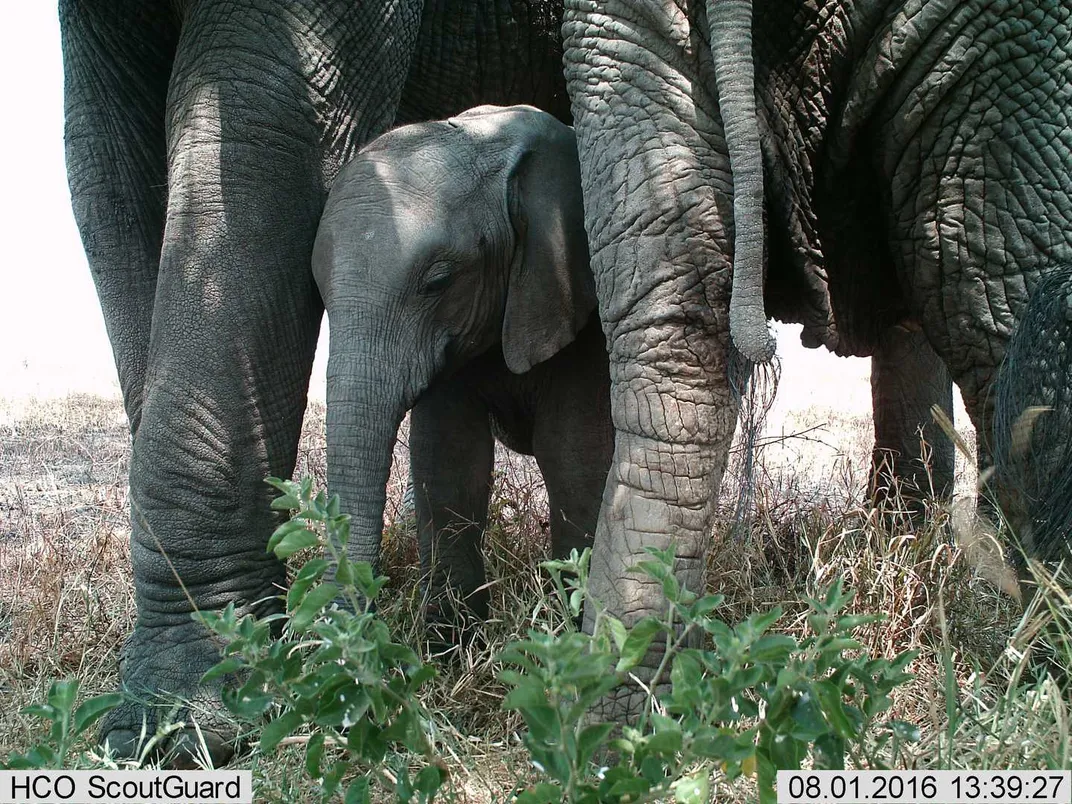
If being cooped up at home has you daydreaming about traveling, Snapshot Safari has six active animal identification projects. Try eyeing lions, leopards, cheetahs, wild dogs, elephants, giraffes, baobab trees and over 400 bird species from camera trap photos taken in South African nature reserves, including De Hoop Nature Reserve and Madikwe Game Reserve .
With South Sudan DiversityCam , researchers are using camera traps to study biodiversity in the dense tropical forests of southwestern South Sudan. Part of the Serenegeti Lion Project, Snapshot Serengeti needs the help of citizen scientists to classify millions of camera trap images of species traveling with the wildebeest migration.
Classify all kinds of monkeys with Chimp&See . Count, identify and track giraffes in northern Kenya . Watering holes host all kinds of wildlife, but that makes the locales hotspots for parasite transmission; Parasite Safari needs volunteers to help figure out which animals come in contact with each other and during what time of year.
Mount Taranaki in New Zealand is a volcanic peak rich in native vegetation, but native wildlife, like the North Island brown kiwi, whio/blue duck and seabirds, are now rare—driven out by introduced predators like wild goats, weasels, stoats, possums and rats. Estimate predator species compared to native wildlife with Taranaki Mounga by spotting species on camera trap images.
The Zoological Society of London’s (ZSL) Instant Wild app has a dozen projects showcasing live images and videos of wildlife around the world. Look for bears, wolves and lynx in Croatia ; wildcats in Costa Rica’s Osa Peninsula ; otters in Hampshire, England ; and both black and white rhinos in the Lewa-Borana landscape in Kenya.
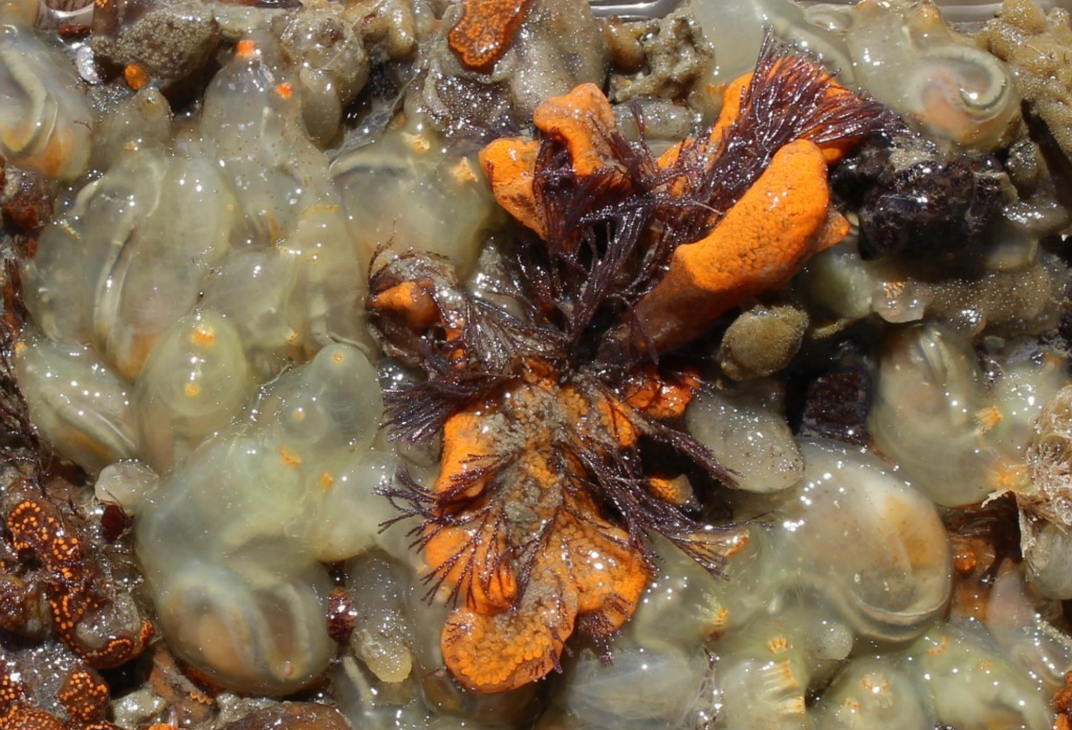
Under the Sea
Researchers use a variety of technologies to learn about marine life and inform conservation efforts. Take, for example, Beluga Bits , a research project focused on determining the sex, age and pod size of beluga whales visiting the Churchill River in northern Manitoba, Canada. With a bit of training, volunteers can learn how to differentiate between a calf, a subadult (grey) or an adult (white)—and even identify individuals using scars or unique pigmentation—in underwater videos and images. Beluga Bits uses a “ beluga boat ,” which travels around the Churchill River estuary with a camera underneath it, to capture the footage and collect GPS data about the whales’ locations.
Many of these online projects are visual, but Manatee Chat needs citizen scientists who can train their ear to decipher manatee vocalizations. Researchers are hoping to learn what calls the marine mammals make and when—with enough practice you might even be able to recognize the distinct calls of individual animals.
Several groups are using drone footage to monitor seal populations. Seals spend most of their time in the water, but come ashore to breed. One group, Seal Watch , is analyzing time-lapse photography and drone images of seals in the British territory of South Georgia in the South Atlantic. A team in Antarctica captured images of Weddell seals every ten minutes while the seals were on land in spring to have their pups. The Weddell Seal Count project aims to find out what threats—like fishing and climate change—the seals face by monitoring changes in their population size. Likewise, the Año Nuevo Island - Animal Count asks volunteers to count elephant seals, sea lions, cormorants and more species on a remote research island off the coast of California.
With Floating Forests , you’ll sift through 40 years of satellite images of the ocean surface identifying kelp forests, which are foundational for marine ecosystems, providing shelter for shrimp, fish and sea urchins. A project based in southwest England, Seagrass Explorer , is investigating the decline of seagrass beds. Researchers are using baited cameras to spot commercial fish in these habitats as well as looking out for algae to study the health of these threatened ecosystems. Search for large sponges, starfish and cold-water corals on the deep seafloor in Sweden’s first marine park with the Koster seafloor observatory project.
The Smithsonian Environmental Research Center needs your help spotting invasive species with Invader ID . Train your eye to spot groups of organisms, known as fouling communities, that live under docks and ship hulls, in an effort to clean up marine ecosystems.
If art history is more your speed, two Dutch art museums need volunteers to start “ fishing in the past ” by analyzing a collection of paintings dating from 1500 to 1700. Each painting features at least one fish, and an interdisciplinary research team of biologists and art historians wants you to identify the species of fish to make a clearer picture of the “role of ichthyology in the past.”
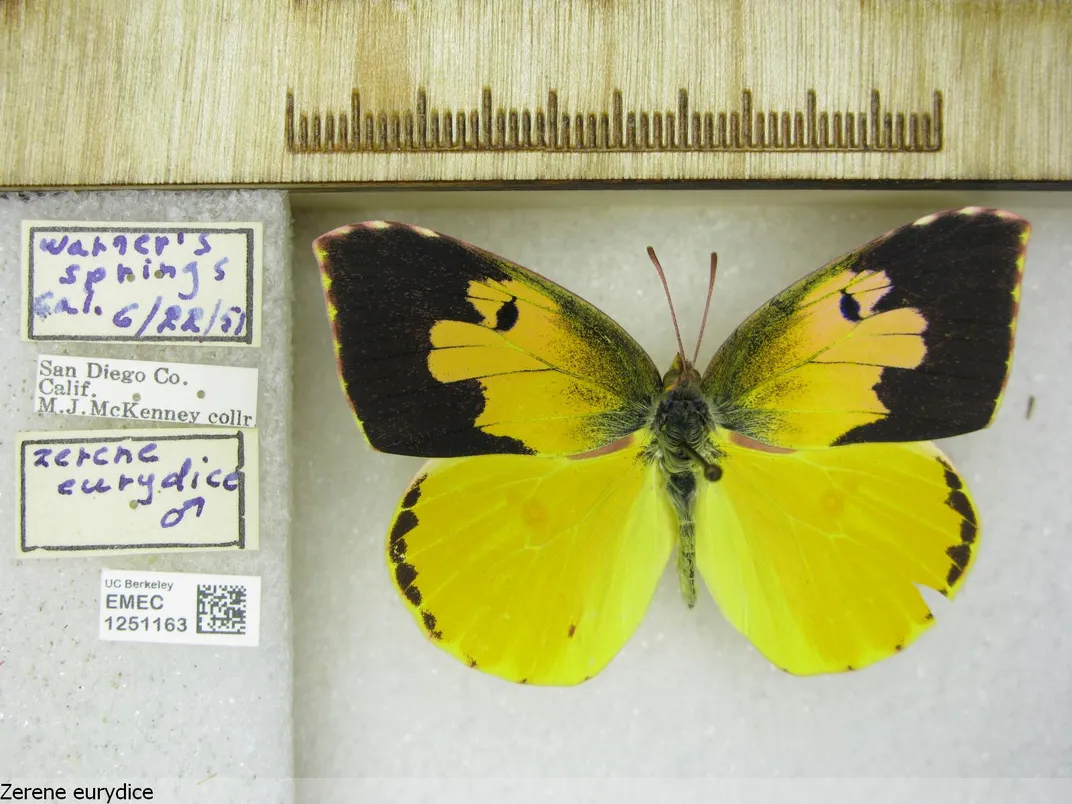
Interesting Insects
Notes from Nature is a digitization effort to make the vast resources in museums’ archives of plants and insects more accessible. Similarly, page through the University of California Berkeley’s butterfly collection on CalBug to help researchers classify these beautiful critters. The University of Michigan Museum of Zoology has already digitized about 300,000 records, but their collection exceeds 4 million bugs. You can hop in now and transcribe their grasshopper archives from the last century . Parasitic arthropods, like mosquitos and ticks, are known disease vectors; to better locate these critters, the Terrestrial Parasite Tracker project is working with 22 collections and institutions to digitize over 1.2 million specimens—and they’re 95 percent done . If you can tolerate mosquito buzzing for a prolonged period of time, the HumBug project needs volunteers to train its algorithm and develop real-time mosquito detection using acoustic monitoring devices. It’s for the greater good!
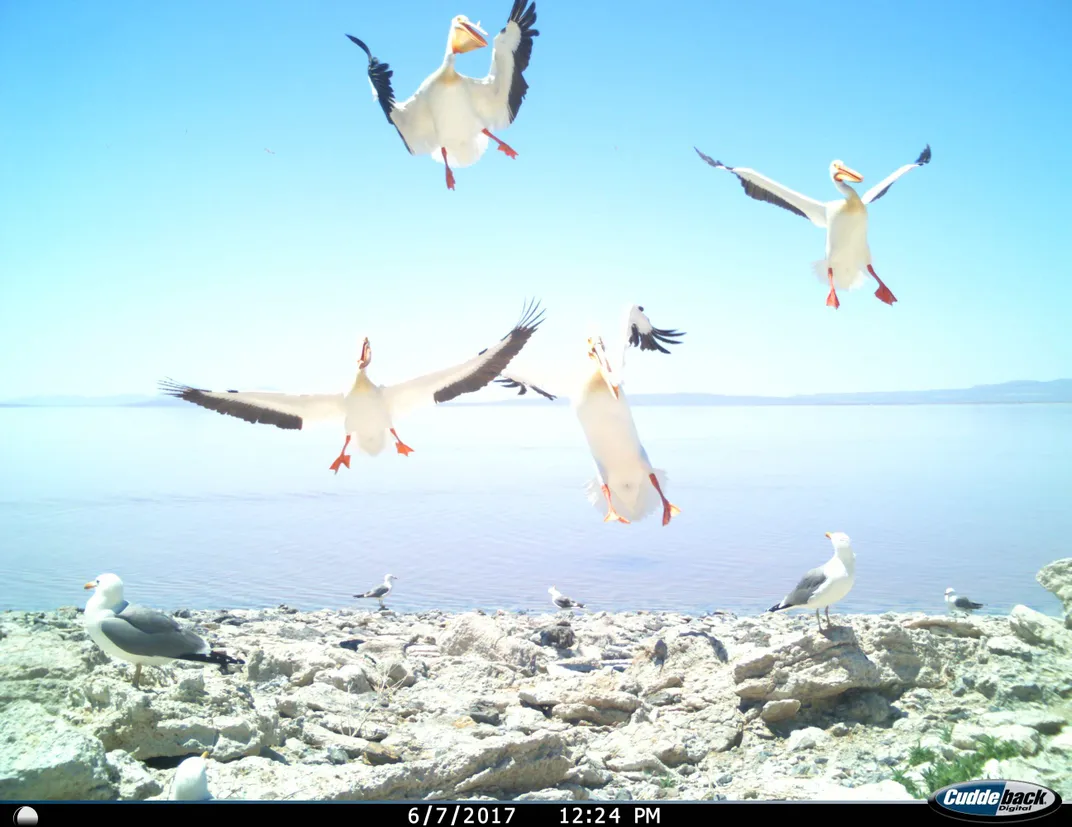
For the Birders
Birdwatching is one of the most common forms of citizen science . Seeing birds in the wilderness is certainly awe-inspiring, but you can birdwatch from your backyard or while walking down the sidewalk in big cities, too. With Cornell University’s eBird app , you can contribute to bird science at any time, anywhere. (Just be sure to remain a safe distance from wildlife—and other humans, while we social distance ). If you have safe access to outdoor space—a backyard, perhaps—Cornell also has a NestWatch program for people to report observations of bird nests. Smithsonian’s Migratory Bird Center has a similar Neighborhood Nest Watch program as well.
Birdwatching is easy enough to do from any window, if you’re sheltering at home, but in case you lack a clear view, consider these online-only projects. Nest Quest currently has a robin database that needs volunteer transcribers to digitize their nest record cards.
You can also pitch in on a variety of efforts to categorize wildlife camera images of burrowing owls , pelicans , penguins (new data coming soon!), and sea birds . Watch nest cam footage of the northern bald ibis or greylag geese on NestCams to help researchers learn about breeding behavior.
Or record the coloration of gorgeous feathers across bird species for researchers at London’s Natural History Museum with Project Plumage .
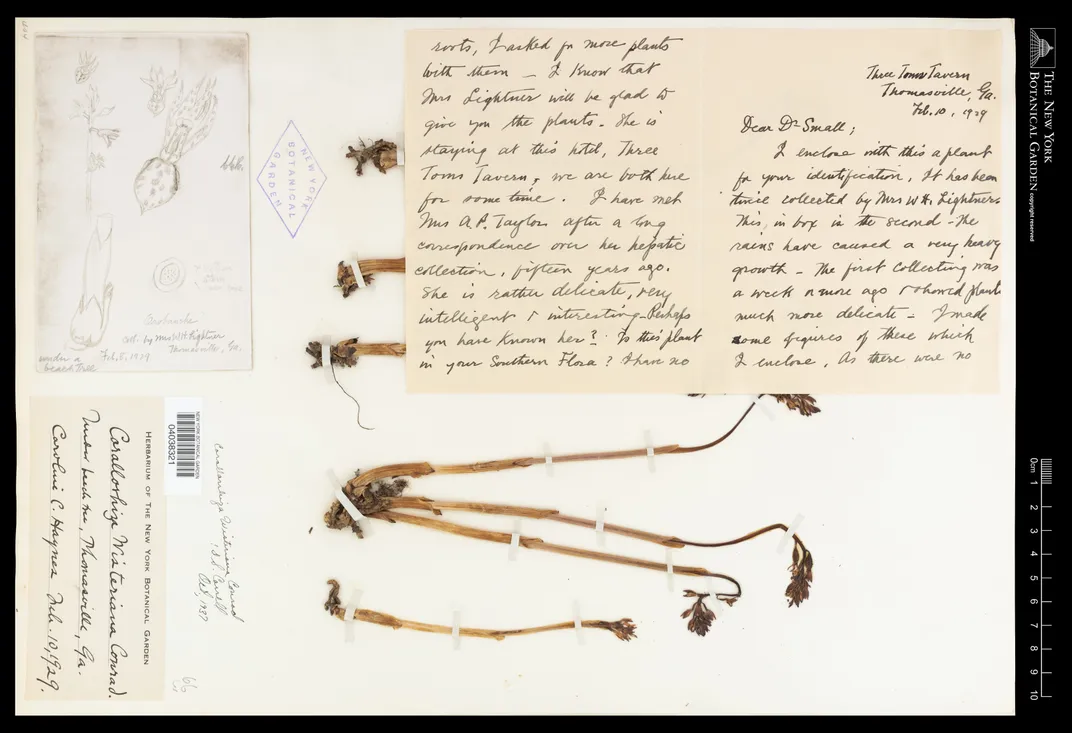
Pretty Plants
If you’re out on a walk wondering what kind of plants are around you, consider downloading Leafsnap , an electronic field guide app developed by Columbia University, the University of Maryland and the Smithsonian Institution. The app has several functions. First, it can be used to identify plants with its visual recognition software. Secondly, scientists can learn about the “ the ebb and flow of flora ” from geotagged images taken by app users.
What is older than the dinosaurs, survived three mass extinctions and still has a living relative today? Ginko trees! Researchers at Smithsonian’s National Museum of Natural History are studying ginko trees and fossils to understand millions of years of plant evolution and climate change with the Fossil Atmospheres project . Using Zooniverse, volunteers will be trained to identify and count stomata, which are holes on a leaf’s surface where carbon dioxide passes through. By counting these holes, or quantifying the stomatal index, scientists can learn how the plants adapted to changing levels of carbon dioxide. These results will inform a field experiment conducted on living trees in which a scientist is adjusting the level of carbon dioxide for different groups.
Help digitize and categorize millions of botanical specimens from natural history museums, research institutions and herbaria across the country with the Notes from Nature Project . Did you know North America is home to a variety of beautiful orchid species? Lend botanists a handby typing handwritten labels on pressed specimens or recording their geographic and historic origins for the New York Botanical Garden’s archives. Likewise, the Southeastern U.S. Biodiversity project needs assistance labeling pressed poppies, sedums, valerians, violets and more. Groups in California , Arkansas , Florida , Texas and Oklahoma all invite citizen scientists to partake in similar tasks.
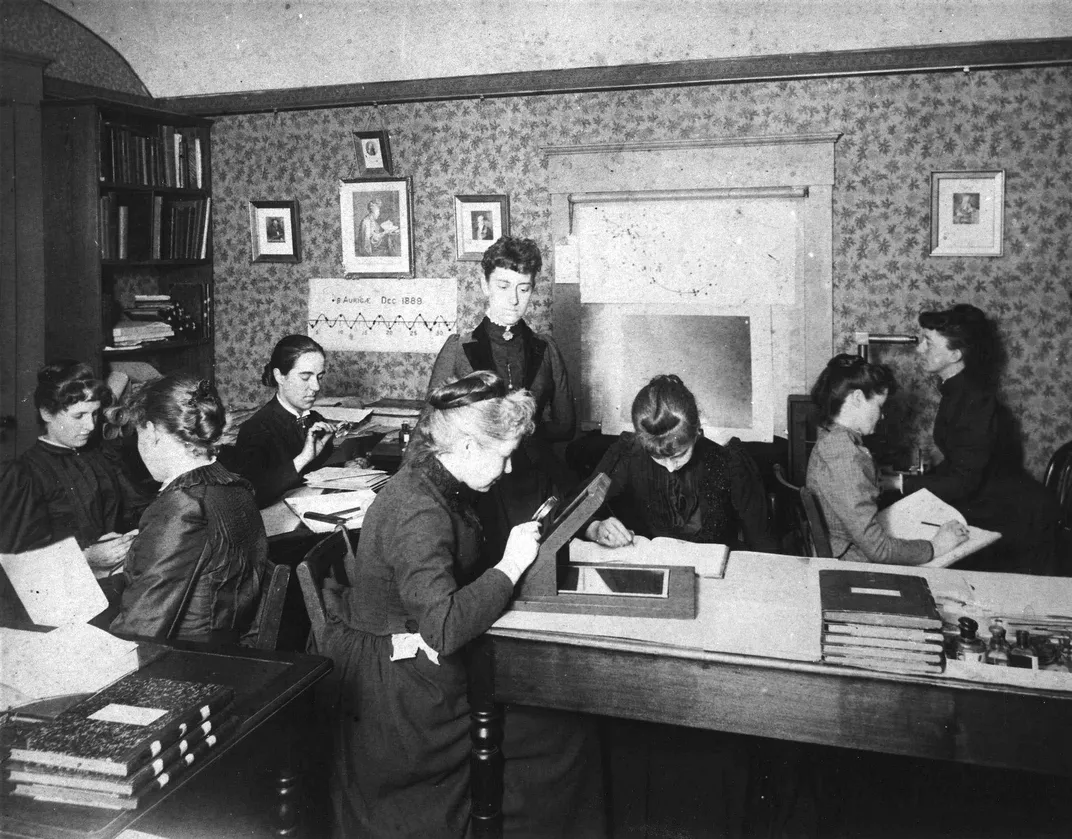
Historic Women in Astronomy
Become a transcriber for Project PHaEDRA and help researchers at the Harvard-Smithsonian Center for Astrophysics preserve the work of Harvard’s women “computers” who revolutionized astronomy in the 20th century. These women contributed more than 130 years of work documenting the night sky, cataloging stars, interpreting stellar spectra, counting galaxies, and measuring distances in space, according to the project description .
More than 2,500 notebooks need transcription on Project PhaEDRA - Star Notes . You could start with Annie Jump Cannon , for example. In 1901, Cannon designed a stellar classification system that astronomers still use today. Cecilia Payne discovered that stars are made primarily of hydrogen and helium and can be categorized by temperature. Two notebooks from Henrietta Swan Leavitt are currently in need of transcription. Leavitt, who was deaf, discovered the link between period and luminosity in Cepheid variables, or pulsating stars, which “led directly to the discovery that the Universe is expanding,” according to her bio on Star Notes .
Volunteers are also needed to transcribe some of these women computers’ notebooks that contain references to photographic glass plates . These plates were used to study space from the 1880s to the 1990s. For example, in 1890, Williamina Flemming discovered the Horsehead Nebula on one of these plates . With Star Notes, you can help bridge the gap between “modern scientific literature and 100 years of astronomical observations,” according to the project description . Star Notes also features the work of Cannon, Leavitt and Dorrit Hoffleit , who authored the fifth edition of the Bright Star Catalog, which features 9,110 of the brightest stars in the sky.
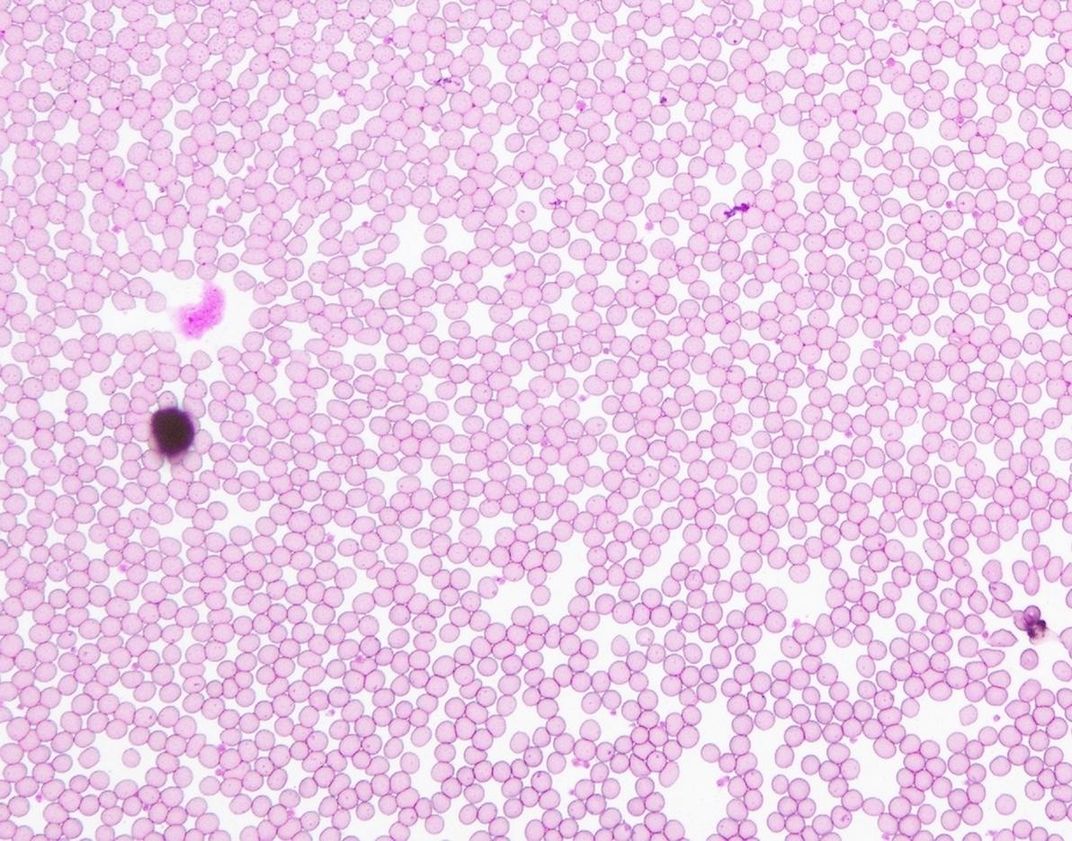
Microscopic Musings
Electron microscopes have super-high resolution and magnification powers—and now, many can process images automatically, allowing teams to collect an immense amount of data. Francis Crick Institute’s Etch A Cell - Powerhouse Hunt project trains volunteers to spot and trace each cell’s mitochondria, a process called manual segmentation. Manual segmentation is a major bottleneck to completing biological research because using computer systems to complete the work is still fraught with errors and, without enough volunteers, doing this work takes a really long time.
For the Monkey Health Explorer project, researchers studying the social behavior of rhesus monkeys on the tiny island Cayo Santiago off the southeastern coast of Puerto Rico need volunteers to analyze the monkeys’ blood samples. Doing so will help the team understand which monkeys are sick and which are healthy, and how the animals’ health influences behavioral changes.
Using the Zooniverse’s app on a phone or tablet, you can become a “ Science Scribbler ” and assist researchers studying how Huntington disease may change a cell’s organelles. The team at the United Kingdom's national synchrotron , which is essentially a giant microscope that harnesses the power of electrons, has taken highly detailed X-ray images of the cells of Huntington’s patients and needs help identifying organelles, in an effort to see how the disease changes their structure.
Oxford University’s Comprehensive Resistance Prediction for Tuberculosis: an International Consortium—or CRyPTIC Project , for short, is seeking the aid of citizen scientists to study over 20,000 TB infection samples from around the world. CRyPTIC’s citizen science platform is called Bash the Bug . On the platform, volunteers will be trained to evaluate the effectiveness of antibiotics on a given sample. Each evaluation will be checked by a scientist for accuracy and then used to train a computer program, which may one day make this process much faster and less labor intensive.

Out of This World
If you’re interested in contributing to astronomy research from the comfort and safety of your sidewalk or backyard, check out Globe at Night . The project monitors light pollution by asking users to try spotting constellations in the night sky at designated times of the year . (For example, Northern Hemisphere dwellers should look for the Bootes and Hercules constellations from June 13 through June 22 and record the visibility in Globe at Night’s app or desktop report page .)
For the amateur astrophysicists out there, the opportunities to contribute to science are vast. NASA's Wide-field Infrared Survey Explorer (WISE) mission is asking for volunteers to search for new objects at the edges of our solar system with the Backyard Worlds: Planet 9 project .
Galaxy Zoo on Zooniverse and its mobile app has operated online citizen science projects for the past decade. According to the project description, there are roughly one hundred billion galaxies in the observable universe. Surprisingly, identifying different types of galaxies by their shape is rather easy. “If you're quick, you may even be the first person to see the galaxies you're asked to classify,” the team writes.
With Radio Galaxy Zoo: LOFAR , volunteers can help identify supermassive blackholes and star-forming galaxies. Galaxy Zoo: Clump Scout asks users to look for young, “clumpy” looking galaxies, which help astronomers understand galaxy evolution.
If current events on Earth have you looking to Mars, perhaps you’d be interested in checking out Planet Four and Planet Four: Terrains —both of which task users with searching and categorizing landscape formations on Mars’ southern hemisphere. You’ll scroll through images of the Martian surface looking for terrain types informally called “spiders,” “baby spiders,” “channel networks” and “swiss cheese.”
Gravitational waves are telltale ripples in spacetime, but they are notoriously difficult to measure. With Gravity Spy , citizen scientists sift through data from Laser Interferometer Gravitational-Wave Observatory, or LIGO , detectors. When lasers beamed down 2.5-mile-long “arms” at these facilities in Livingston, Louisiana and Hanford, Washington are interrupted, a gravitational wave is detected. But the detectors are sensitive to “glitches” that, in models, look similar to the astrophysical signals scientists are looking for. Gravity Spy teaches citizen scientists how to identify fakes so researchers can get a better view of the real deal. This work will, in turn, train computer algorithms to do the same.
Similarly, the project Supernova Hunters needs volunteers to clear out the “bogus detections of supernovae,” allowing researchers to track the progression of actual supernovae. In Hubble Space Telescope images, you can search for asteroid tails with Hubble Asteroid Hunter . And with Planet Hunters TESS , which teaches users to identify planetary formations, you just “might be the first person to discover a planet around a nearby star in the Milky Way,” according to the project description.
Help astronomers refine prediction models for solar storms, which kick up dust that impacts spacecraft orbiting the sun, with Solar Stormwatch II. Thanks to the first iteration of the project, astronomers were able to publish seven papers with their findings.
With Mapping Historic Skies , identify constellations on gorgeous celestial maps of the sky covering a span of 600 years from the Adler Planetarium collection in Chicago. Similarly, help fill in the gaps of historic astronomy with Astronomy Rewind , a project that aims to “make a holistic map of images of the sky.”
Get the latest Science stories in your inbox.
/https://tf-cmsv2-smithsonianmag-media.s3.amazonaws.com/accounts/headshot/rachael.png)
Rachael Lallensack | READ MORE
Rachael Lallensack is the former assistant web editor for science and innovation at Smithsonian .
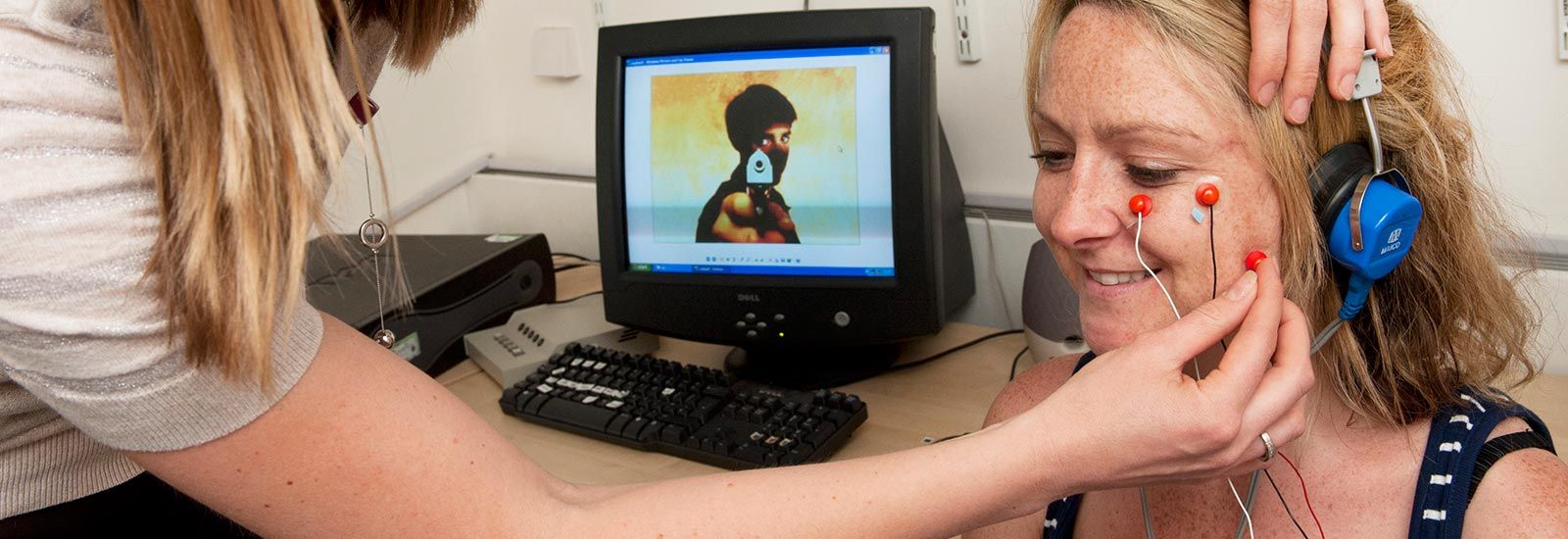
Get involved with our research
Some of our research projects rely on the generosity of people like you. Whether it's harnessing the power of your home PC, taking part in a clinical trial, or simply volunteering your time for a study, you may be able to contribute to some of the ground-breaking projects which make the University of Oxford a world leader in research. Watch this space for ways in which you could get involved.
Investigating children’s understanding of data practices on YouTube
Human Computer Interaction (HCI) group, at the Department of Computer Science Ethical Approval Reference: CS_C1A_021_028
What is the purpose of the research?
YouTube has been one of the most used platforms by children, however, children and parents are sometimes unaware of the data collection practices on the YouTube platform. We would like to investigate how children aged 7-13 perceive the data collection and processing practices on the YouTube platform, and what children expect to be supported that may help them navigate their data on YouTube.
Who can take part?
- We would like to recruit children ( aged between seven and 13 ).
- We are looking for children who spend at least two hours per week on YouTube
What does the study involve?
Participants will have the option to take the study either in-person or online. All children participants will be asked to complete a 30-40-minute interview with the researchers (with at least two researchers present in the interview for safeguarding). Children will be using their own device to complete a few tasks on YouTube during the interview. Your child will be asked about their current experience and usage of YouTube and how they make use of video recommendations on YouTube. We will then show them two videos on how YouTube collects and processes their data and ask about their perceptions.
Where does the study take place?
Family participants will have the option to do the study either in-person or online.
What will my children learn?
We hope through taking part in this research, your child would have more awareness and a deeper understanding of the data collection and processing practices on the YouTube platform, therefore help them to make more informed decisions about their data in the future.
Expenses and payments?
All travel expenses would be reimbursed. A small gift voucher will be provided as a thank-you gift.
How can you and your children take part?
If you are interested in taking part, please email [email protected]
For more information, please follow this link: https://koala.web.ox.ac.uk/participants-wanted
Seeking poor sleepers for insomnia research
Trouble sleeping? Researchers from the Sleep & Circadian Neuroscience Institute at the University of Oxford are evaluating different interventions aimed at improving sleep. We are looking for poor sleepers between the ages of 18 and 65. Participation will involve spending overnights in the sleep laboratory at Oxford, monitoring your sleep/wake cycle, and completing computerised tasks. Depending on the study you volunteer for, you will either undergo an online self-help treatment programme or lab-based non-invasive brain stimulation sessions prior to bedtime. You will be reimbursed for your time.
If you are interested in taking part or would like more information, please contact the research team directly at [email protected]
Volunteers with lazy eye wanted
We are looking for volunteers with a history of lazy eye, patching or amblyopia to take part in our brain scanning study on how binocular vision relates to brain chemistry.
Who are we looking for?
We are looking for healthy, fluent English volunteers aged 18-45 with a history of lazy eye, patching therapy or amblyopia.
You will also be asked questions about your medical history to check your suitability for an MRI scan.
Participants will be reimbursed for their time.
How can I find out more?
If you are interested and would like more information please contact Betina Ip in the Department of Physiology, Anatomy and Genetics, University of Oxford, by emailing [email protected] or visit amblyopiaproject.wordpress.com
CUREC No: MSD-IDREC-C1-2014-146
Oxford Vaccine Group
The Oxford Vaccine Group, part of the Department of Paediatrics, is an independent multi-disciplinary clinical trials and epidemiology group based at the Centre for Clinical Vaccinology and Tropical Medicine. OVG works towards the goal of developing new and improved vaccines for the prevention of infection in adults and children, enhancing the understanding of immunity and studying the epidemiology of infectious diseases.
To find out which research projects are currently recruiting volunteers, please see the OVG website or email [email protected]
Vaccine Trials
The Jenner Institute works to develop innovative vaccines against major global diseases such as malaria, tuberculosis and influenza and often needs participants for trials. To find out which trials are currently recruiting volunteers, please see the Jenner Institute website or email [email protected] .
Oxford Education Deanery
We warmly welcome interest from teachers in local state-maintained schools that are members of the Oxford Education Deanery that want to engage with/in research and/or undertake continuing professional development. Opportunities available to eligible teachers include the NQT induction programme, Action Research Fellowships and the Enhanced Masters in Learning and Teaching. We are also keen to work collaboratively with local Deanery schools to develop research projects that meet school needs and disseminate findings effectively. If your school is not a Deanery member and you are interested in joining, please follow this link for contact information .
Nuffield Centre for Experimental Social Sciences
The Nuffield Centre for Experimental Social Science (CESS) is currently recruiting for its pool of individuals interested in participating in paid experiments in social sciences.
CESS currently conducts online experiments that can be completed from the comfort of your home (while we prepare the reopening of the physical laboratory). Typical CESS studies involve reading instructions and making a series of decisions at a computer that may affect the final compensation that is received by you and other participants.
Participants make at least £3 for every experiment they show up for and earn additional average payments of £8/hour depending on decisions made during the experiment. Participation is entirely voluntary and you can remove yourself from the participant pool at any time.
- Access CESS promises to participants
- Learn more about the Centre for Experimental Social Sciences and sign up here
For additional information, please do not hesitate to contact [email protected]
Oxford eXperimental lab for the Social Sciences
The Oxford Internet Institute, together with the Saïd Business School, is recruiting individuals to participate in computer-based experiments involving online surfing behaviour as well as economic and political decision-making. We pay our subjects well, there are no special skills required and you don't have to be a student to take part!
- Register to take part
Climateprediction.net
Climateprediction.net, run by researchers at the Department of Physics, harnesses the power of volunteers’ computers to produce predictions of the Earth’s climate and test the accuracy of climate models. You can take part by running a climate model as a background process on your computer, and you'll get to see your own, unique version of the world evolve.
Experimental Psychology research
The Department of Experimental Psychology is always looking for volunteers for a changing portfolio of research projects.
- Browse the list of current projects
Diabetes clinical research
Clinical trials – the controlled testing of the safety and effectiveness of new therapies with lots of patients – are essential to medical science, yet recruiting volunteers can be a problem. If you’re interested in learning about the benefits and what’s involved, a new website has been launched by the Diabetes Research Network, coordinated by the Oxford Centre for Diabetes, Endocrinology and Metabolism (OCDEM) and Imperial College London.
- Find out more about clinical trials
Free Speech Debate
Join Professor Timothy Garton Ash's global debate on free speech. Read and criticise the project's 10 draft principles. Explore controversial examples. Hear the thoughts of others.
The editorial content of the website is being translated into Arabic, Chinese, English, Farsi, French, German, Hindi, Japanese, Portuguese, Russian, Spanish, Turkish and Urdu.
- Register online to join the debate
Ancient Lives
Armchair archaeologists are needed to help decode ancient Egyptian papyri, written in Greek.
- Learn more about Ancient Lives
By taking part in classifying galaxies with our Department of Astrophysics, you'll not only be contributing to scientific research, you'll also have the chance to view parts of the Universe that literally no-one has ever seen before.
- Learn more about Galaxy Zoo
Become a virtual astronaut and examine the surface of the moon. You'll not only get the chance to spot things that have never been seen before - everything from lost Russian spacecraft to previously unseen geological features - but you'll also help us answer vital scientific questions.
- Learn more about Moon Zoo
Related link
- Clinical Trials in Oxford (Oxford University Hospitals NHS Trust)
- Research at Oxford

The name Caretta Research Project comes from the scientific name of the loggerhead sea turtle, Caretta caretta.
Our Strategy
Caretta research project focuses work in the following strategic areas.
Caretta Research Project uses long-term monitoring, innovative research tools and techniques, and multi-institutional collaborations to generate scientifically grounded results that can be applied to sea turtle conservation both regionally and internationally.
Conservation
Caretta Research Project implements rigorous nest protection procedures to minimize direct threats to eggs and hatchlings on Wassaw Island and increase annual hatchling production.
Caretta Research Project provides unique experiential opportunities for public participants to volunteer in hands-on sea turtle research and protection during turtle nesting and hatching seasons. Throughout the year, CRP also engages and educates a diverse array of public stakeholders in sea turtle conservation to improve public awareness and support for initiatives to eliminate threats to sea turtle survival.
Caretta Research Project works with and supports local, regional and international environmental organizations whose advocacy initiatives align with our mission to reduce and eliminate threats to sea turtle survival.
Our Commitment
We are committed to providing equal opportunities regardless of race, sex, nationality, gender identity, sexual orientation, socioeconomic background, or religion. If you're interested in volunteering with CRP, please contact us. We'd love to share more about our project with you and see if it would be a good fit for you.
Our Location
Caretta Research Project is based in Savannah, GA and all of our sea turtle research and protection activities occur on Wassaw National Wildlife Refuge, located only 15 miles southeast of Historic Downtown Savannah and just south of Tybee & Little Tybee islands.
Learn about the CRP Experience
Video created by David Troth Wright
Caretta Research Project News

2024 Annual Fundraiser - A Night on the River - Beaulieu


IMAGES
VIDEO
COMMENTS
A vibrant community. Zooniverse gives people of all ages and backgrounds the chance to participate in real research with over 50 active online citizen science projects. Work with millions of registered users around the world to contribute to research projects led by hundreds of researchers. Sign in or register to get started.
ResearchMatch helps you find a clinical trial or research study near you, or across the country, by matching you with researchers from leading medical research institutions. Whether you are a healthy volunteer or have a health condition, ResearchMatch connects you to research opportunities so you can make a difference and advance scientific discoveries by participating in research studies ...
Ocean. Delve into NOAA's pursuit to observe, understand, and manage our nation's coastal and marine resources. Opportunities include: National Estuarine Reserve Volunteer: Event coordinators, research assistants, and educators are just some of the many more ways you can help NOAA in protecting our nation's coastal protected areas.
ResearchMatch helps you find a clinical trial or research study near you, or across the country, by matching you with researchers from leading medical research institutions. Whether you are a healthy volunteer or have a health condition, ResearchMatch connects you to research opportunities so you can make a difference and advance scientific discoveries by participating in research studies ...
In addition, Mayo Clinic has a research subject advocate who is independent of all clinical studies and is a resource for research participants. Contact the research subject advocate by email or at 507-266-9372 with questions, concerns and ideas for improving research practices. Find out more about volunteering for clinical studies and how to ...
ResearchMatch helps you find a clinical trial or research study near you, or across the country, by matching you with researchers from leading medical research institutions. Whether you are a healthy volunteer or have a health condition, ResearchMatch connects you to research opportunities so you can make a difference and advance scientific discoveries by participating in research studies ...
Volunteers provide critical skills and expertise on our projects that improve the whole community. For example, on preserves and partner natural areas, volunteers are restoring and maintaining diverse habitats, making them resilient in the face of climate change impacts—helping people, plants, animals and other organisms adapt to warmer ...
Become a DataKind Volunteer in three easy steps: Step 1: Learn about DataKind's Projects. To see if volunteering with DataKind is right for you, check out our blog to learn about volunteer spotlights and our recent projects to get a sense of what types of issues you would be working on, and what the experience can offer.
The first thing you need to do is identify a research project that interests you, and is in need of volunteers. The easiest way to do this is to go through a nonprofit organization that matches ...
As a marine biology research volunteer with Oceans Research, you will have the opportunity to work on long-term research projects, such as the great white shark population assessment or habitat use of marine mammals. During the volunteer program, our volunteers gain first-hand, practical experience with a diversity of field research, seamanship ...
Participate in Research› Find Studies. Find Studies. Research studies are looking for volunteers just like you. Both healthy volunteers and participants with specific health conditions are needed to help answer important questions impacting the health of our friends and family. Join us to improve the health of others.
Become a Volunteer Become a Volunteer Become a Volunteer Participate in behavioral studies from researchers around the world. Participate Participate
Commitment: Availability for volunteering for specific projects is subject to change, and specific volunteer duties and required hours will depend on the specific project and current project status. An individualized research training experience will be established based on availability as well as volunteer's interests and goals.
Earthwatch expeditions pair researchers with volunteers to address some of the world's most pressing environmental challenges. Explore our current expeditions to discover how you can make a difference. ... Our Research Focus. Terrestrial Ecosystems. Preserve and restore forests, assess and mitigate the impacts of a changing climate, and ...
Marine Biology Research Volunteer Program in Mozambique. Volunteer in one of the most beautiful coastal locations in Africa, getting involved in world-class field research and community development. Explore, learn, and assist a marine project designed and created by leading whale shark and manta ray scientists.
Moderate a Project. Volunteer moderators assist research teams with the project's Talk discussion tool. They help moderate discussions, act as a point of contact for the project, and have additional permissions on Talk. Moderators are selected by the project owner. If you're interested in becoming a moderator on a project you're taking part ...
The ITHS is pleased to participate in ResearchMatch, a free, nationwide database of potential research volunteers sponsored by the National Institutes of Health. The goal of ResearchMatch is to bring volunteers together with researchers working towards new medical treatments (not just clinical trials). Many studies are looking for healthy ...
Contribution to Improved Patient Care: Volunteering in research projects directly impacts the advancement of medical knowledge, leading to improved patient care. By participating, individuals contribute to the development of new treatments, therapies, and interventions that can enhance healthcare outcomes for patients worldwide.
Similarly, the project Supernova Hunters needs volunteers to clear out the "bogus detections of supernovae," allowing researchers to track the progression of actual supernovae.
Get involved with our research. Some of our research projects rely on the generosity of people like you. Whether it's harnessing the power of your home PC, taking part in a clinical trial, or simply volunteering your time for a study, you may be able to contribute to some of the ground-breaking projects which make the University of Oxford a ...
Education. Caretta Research Project provides unique experiential opportunities for public participants to volunteer in hands-on sea turtle research and protection during turtle nesting and hatching seasons. Throughout the year, CRP also engages and educates a diverse array of public stakeholders in sea turtle conservation to improve public ...
Researchers. ResearchMatch is a free participant recruitment and feasibility analysis tool for researchers at participating institutions. This tool is funded by the NIH and offered at no cost to researchers who are conducting health-related research. Click here to learn more about our 119,974 volunteers who are currently part of ResearchMatch.
The role in a nutshell: As a People Development Research Volunteer you would work with our Learning, Development, and Wellbeing team to research, identify, propose, and make recommendations for wellbeing, learning and development (L&D) projects as directed by the team. This is an excellent opportunity for somebody with an interest and passion ...
We believe in the power of project management to drive positive change. There are multiple ways you can contribute to our social impact initiatives, whether through global programs or local efforts. By volunteering your skills and time, you can make a meaningful difference in communities worldwide. Here are some of the key ways you can get ...